Romany wrote this at the end of her second year studying Linguistics at Christ's College, Cambridge. She is from Heanor, Derbyshire, though went to school in Nottinghamshire, and did A-Levels in English Language & Literature (combined), History, Maths and Further Maths, plus an Extended Project Qualification in Politics.
What attracted you to your course?
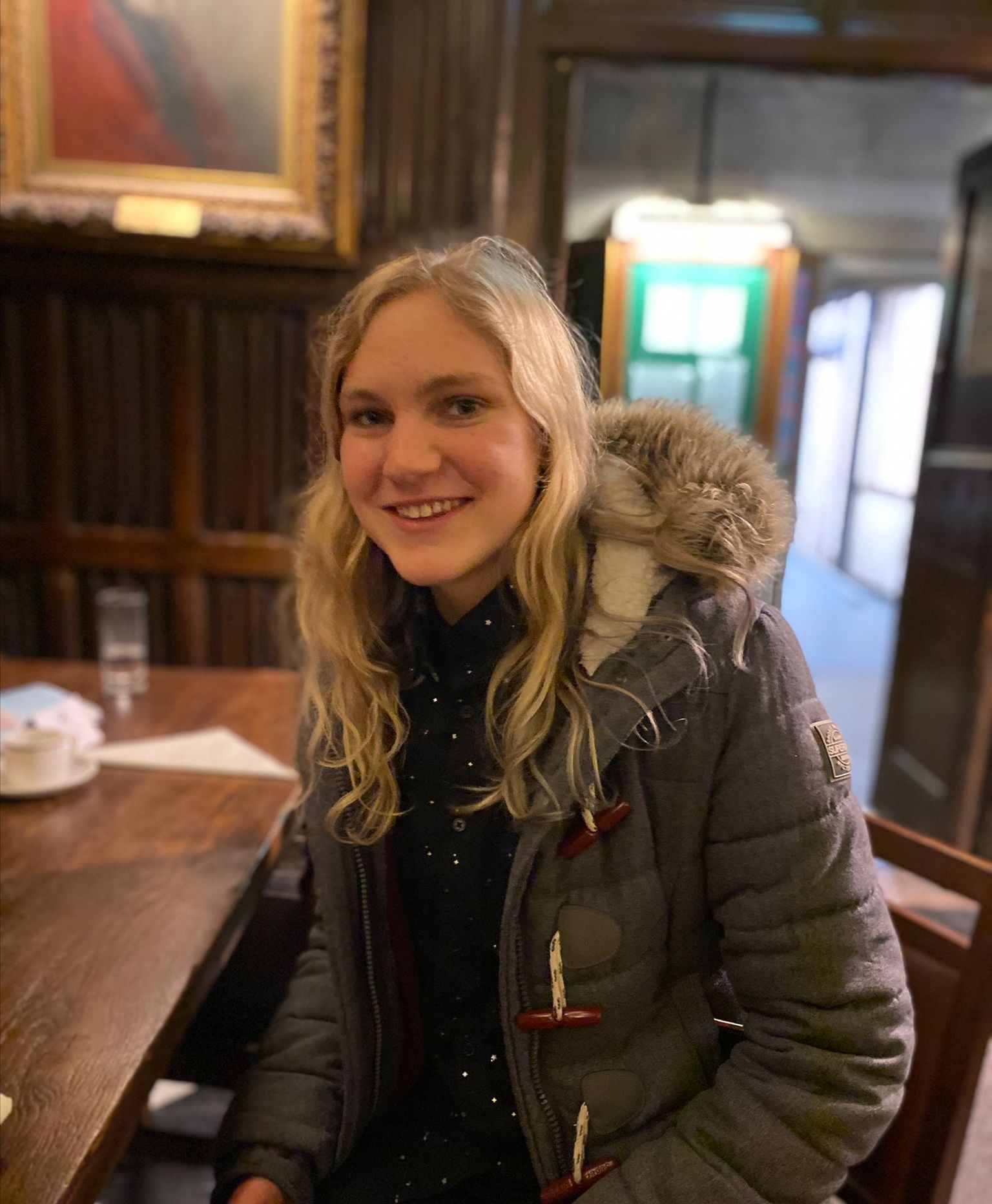 Being indecisive, mostly! My favourite subjects at school were English and Maths, which are two very different skill sets that are very difficult to find in one course. I looked at courses in pretty much everything you can imagine, including Human Social and Political Sciences at Cambridge, but also International Relations, Politics, History, English, Sociology, Economics, Philosophy, Journalism, Liberal Arts and lots of very strange joint honours at loads of universities. I only found out that Linguistics was a thing in Year 12, when I was researching for an Extended Project Qualification on the effects of diversity on political systems. I stumbled accross this linguistic analysis of parliamentary speeches, comparing the frequencies of different topics by male and female politicians. From there, I got very distracted from the EPQ, and went down a rabbit-hole of reading and podcasts about linguistics!
Being indecisive, mostly! My favourite subjects at school were English and Maths, which are two very different skill sets that are very difficult to find in one course. I looked at courses in pretty much everything you can imagine, including Human Social and Political Sciences at Cambridge, but also International Relations, Politics, History, English, Sociology, Economics, Philosophy, Journalism, Liberal Arts and lots of very strange joint honours at loads of universities. I only found out that Linguistics was a thing in Year 12, when I was researching for an Extended Project Qualification on the effects of diversity on political systems. I stumbled accross this linguistic analysis of parliamentary speeches, comparing the frequencies of different topics by male and female politicians. From there, I got very distracted from the EPQ, and went down a rabbit-hole of reading and podcasts about linguistics!
I wasn't totally committed to it even as I was applying to University: I applied to English at one of my choices, and Language, Culture and Communication Studies at another, as well as another Linguistics course. Applying to Cambridge was done more on a whim (to see if I could get in!) than anything else! It was only when I had my interview that I realised Linguistics gave the mixture of mathsy-problem-solving and wordy-social-science-stuff that I'd been looking for in a course. Meeting the academics there, hearing their (really cool!) questions, and discussing the answers with them was what made me sure I wanted to come to Cambridge.
Was there anything in relation to the course that you were nervous about?
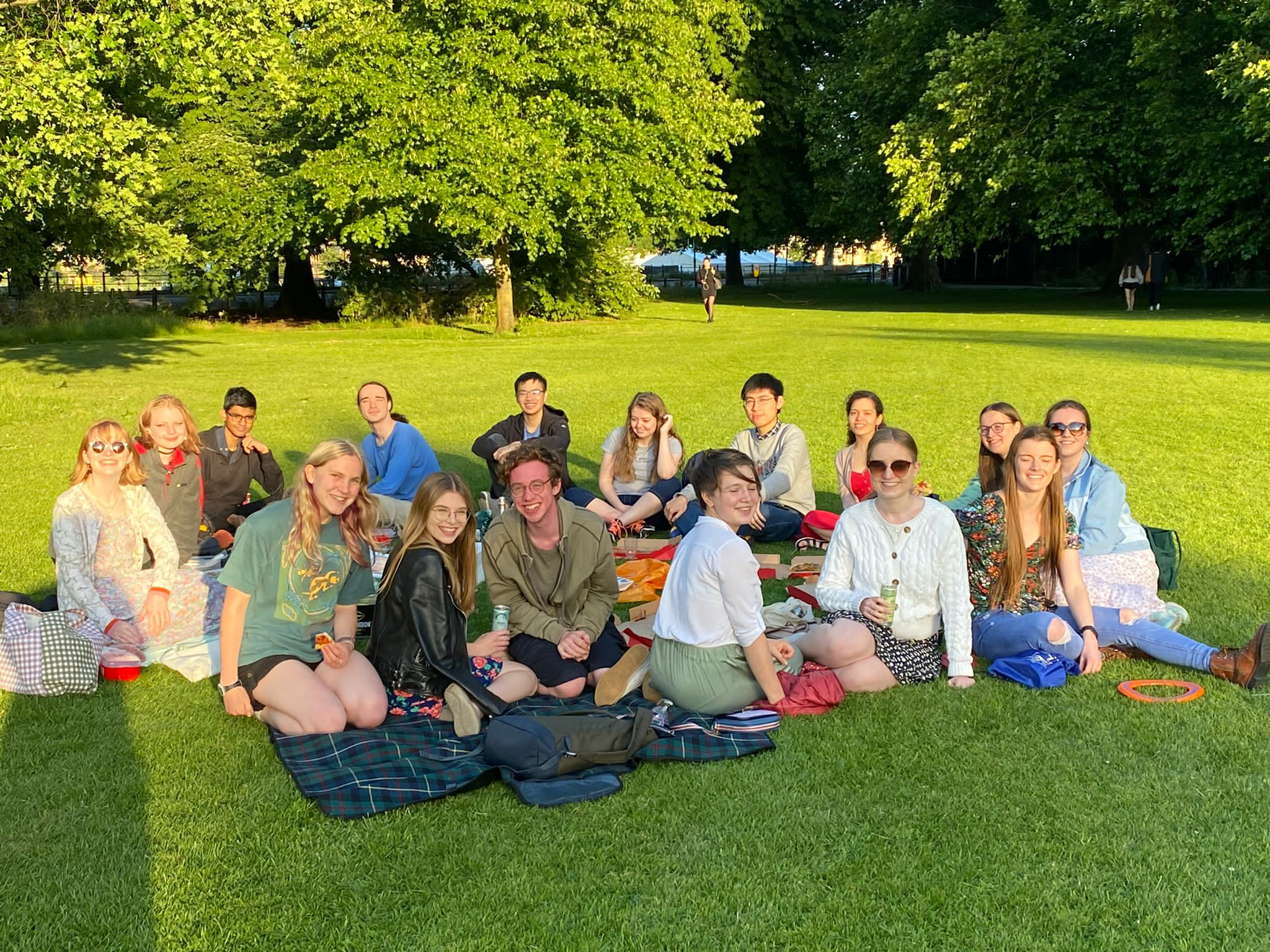
The big one was that I hadn't done any languages at A-level, and hadn't especially enjoyed German at GCSE. I worried a lot that this was a sign I wouldn't enjoy linguistics, and also that not having a background of language knowledge would make the course more difficult. This underpinned the more general concern that I would start university and then realise that linguistics wasn't the subject for me, having never studied anything like it before.
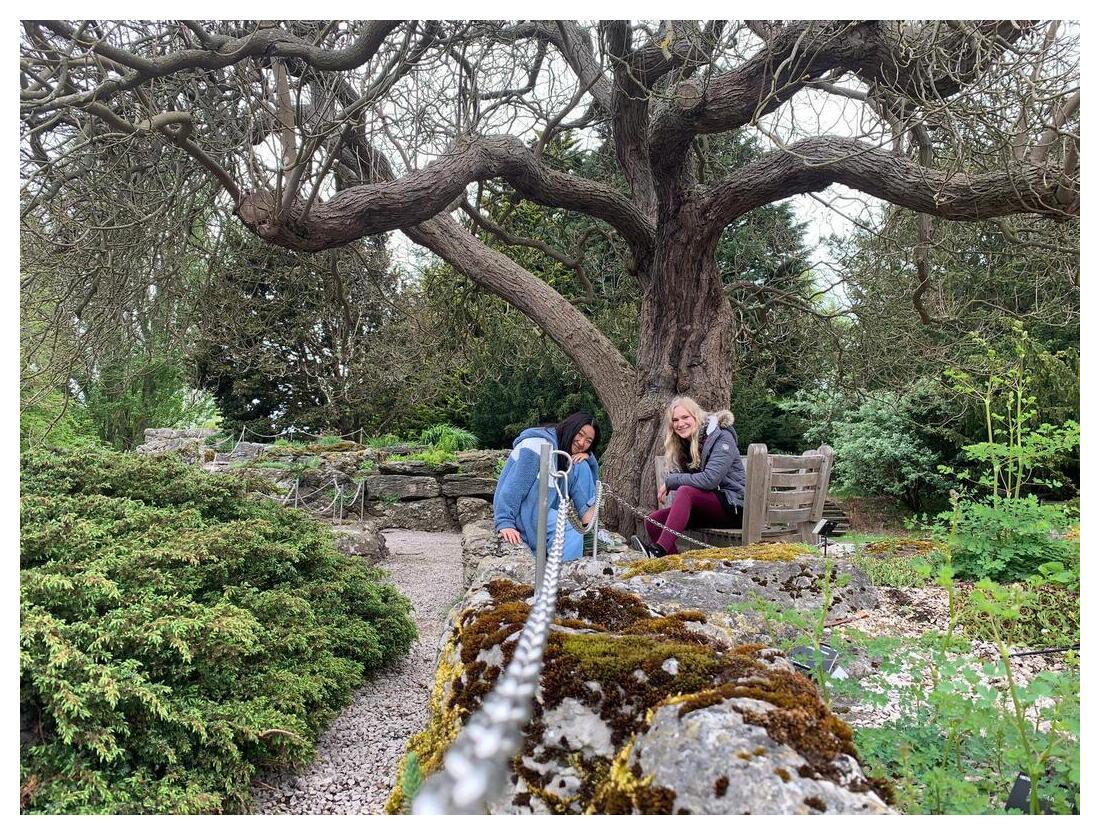
I didn't need to have worried - for so many reasons! Firstly, I enjoy learning about linguistics a lot, much more than I enjoyed any of my school subjects individually. Secondly, not having a languages background is not that much of a barrier to understanding linguistics: especially in first year, all the big concepts are taught in relation to English. There were a few times in second year that it was a bit annoying I didn't have any none-English languages up my sleeve to use as examples, but actually that forced me to go and research some examples in smaller languages (why reference German when you can talk about Igbo, or Twi, or Yucatec Maya?). Thirdly, studying linguistics has given me a newfound appreciation of learning languages! I've taken German back up since I got here, started teaching myself (very basic!) Swedish, and hope to start an open Ukrainian course in October.
Why did you apply to Christ's?
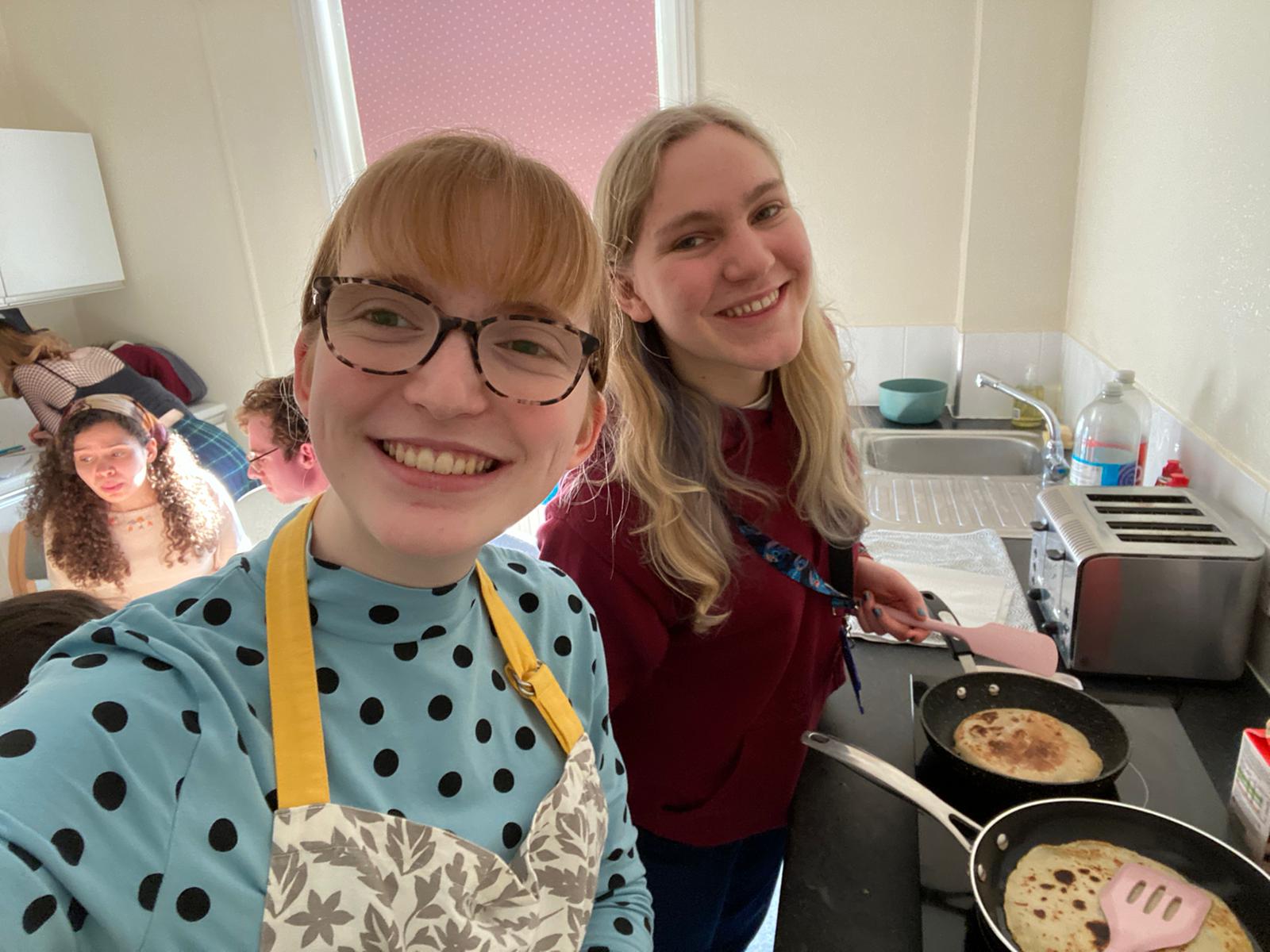
I came on the LPN summer school at the end of Year 11 and Year 12, which is jointly hosted by Christ's, Sydney Sussex and Murray Edwards. Although I didn't stay at Christ's, a lot of the teaching for the Social Science stream was based here, which meant I got to explore the place and also meet some of the staff. The things that impressed me most were 1) the grounds (First court is stunning!), 2) the location (as central as you can get!), and 3) the admissions team. Everyone I met there was really friendly and kind, and as someone who was very scared of Cambridge as a university, it was reassuring that there would be nice College-people reading my application and sending me emails. To be honest, I didn't look anywhere else after coming here.
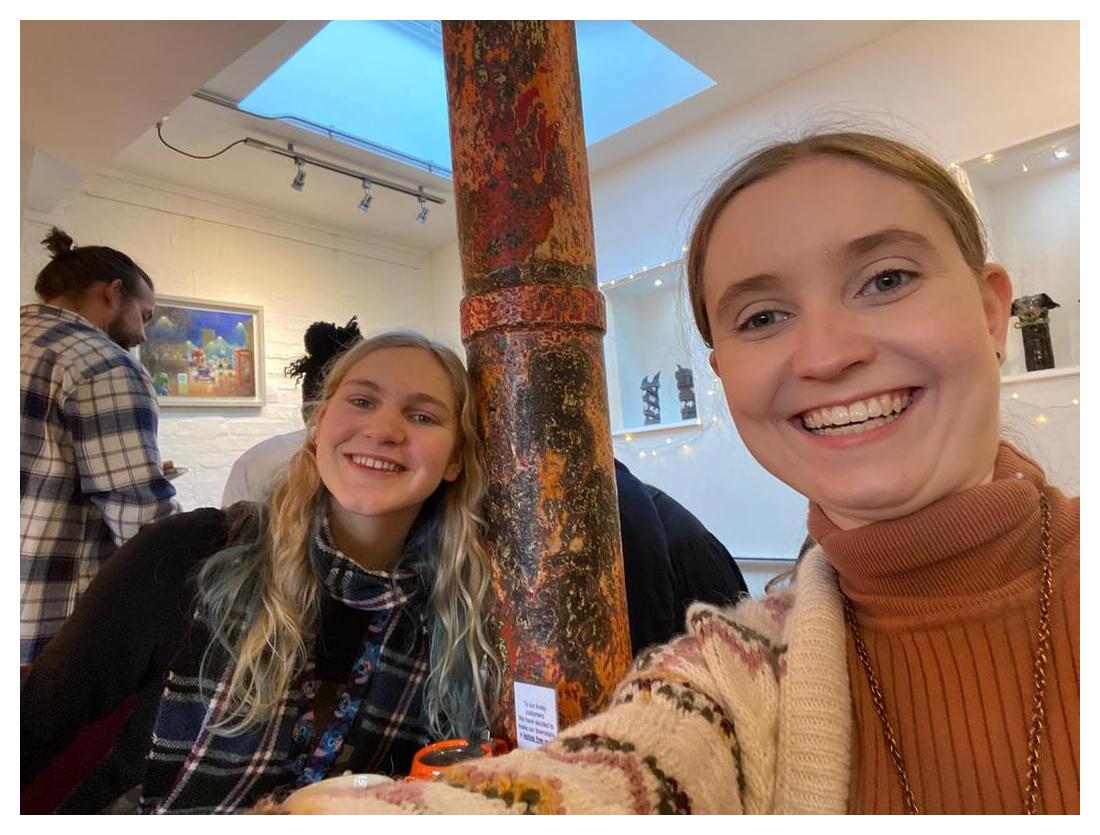
That somewhat laid-back approach to college choice seems to have turned out okay! There are things I didn't even think to look for that Christ's offers, like free laundry, unlimited sides in the College canteen, grants for trips and study materials, access to good, (cheap or free!) sports facilities, an active JCR (college-level student union) with lots of student societies. And college cats!
My original observation about the friendly people seems to have held true as well. My Tutor (an academic in a totally different subject who keeps an eye on pastoral stuff), and Director of Studies (a linguist academic who oversees my progress on the course) are both great at checking in on how things are going, and it's reassuring to know that either of them are on the other end of an email if things do come up. There are lovely people around on a more day-to-day level, too: students end up on first-name terms with a lot of the porters, gardeners, cleaners, catering and office staff. These (alongside all the students around who will stop to chat!) make for a college full of friendly faces to distract you from what you are meant to be doing!
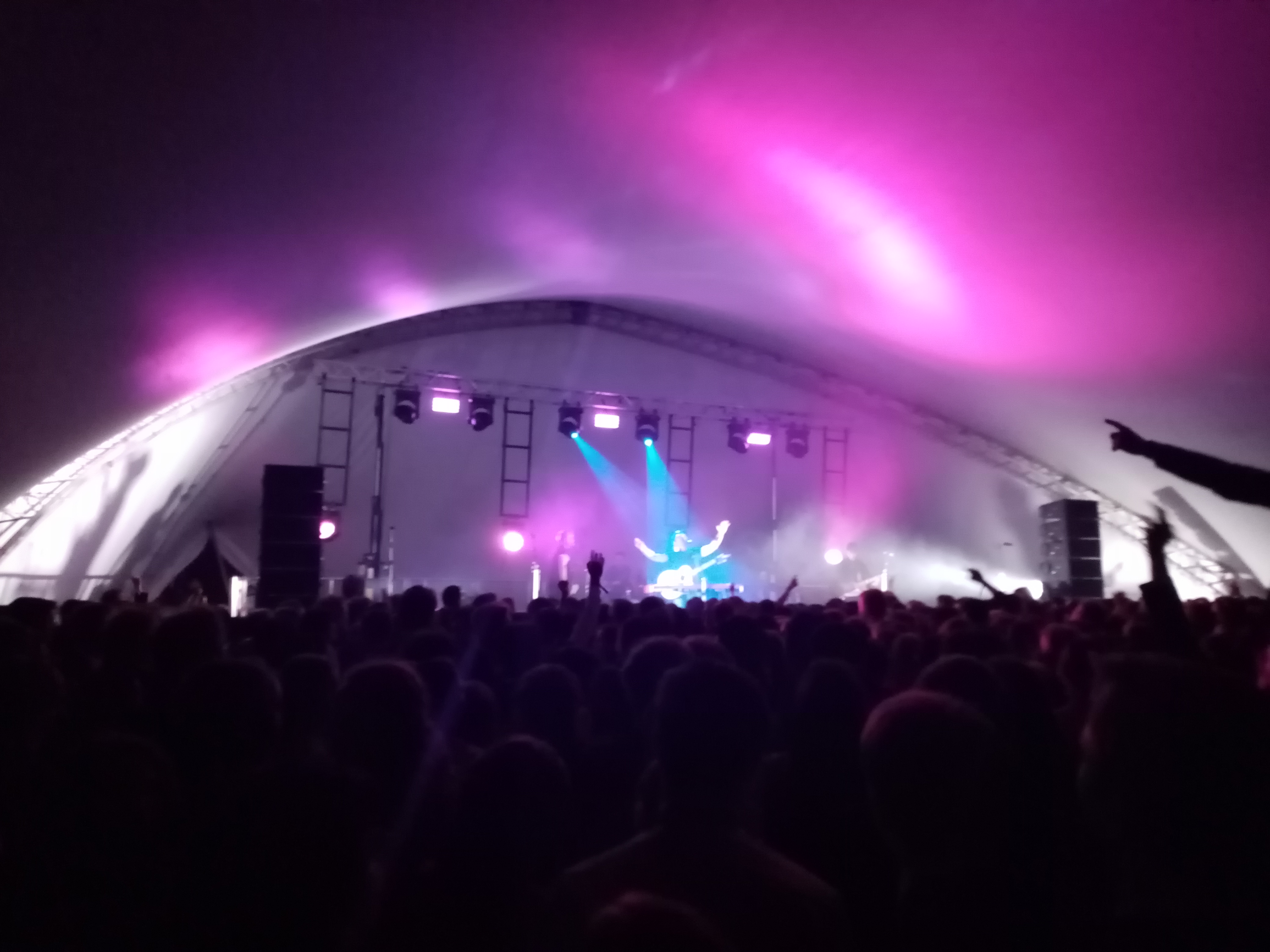 |
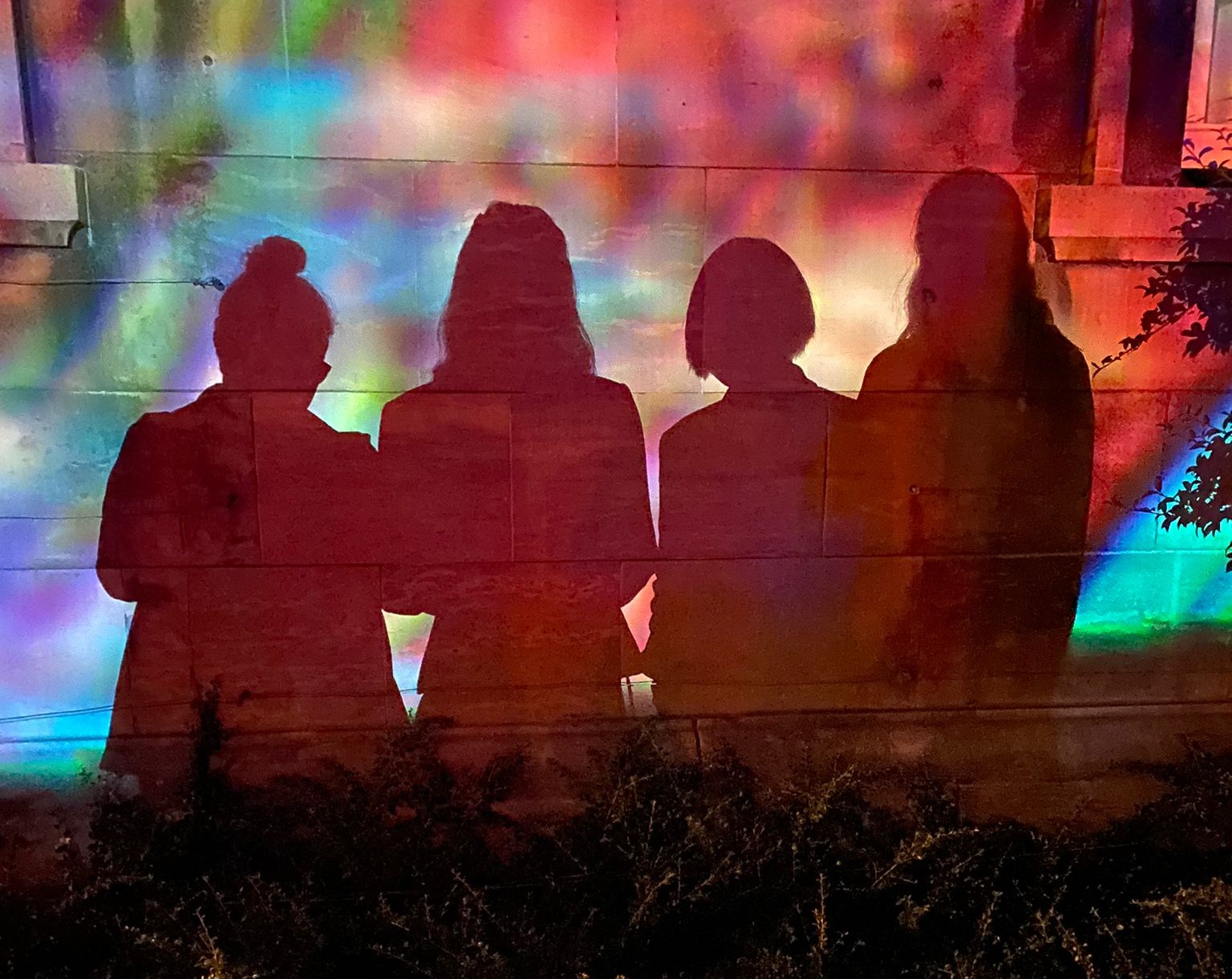 |
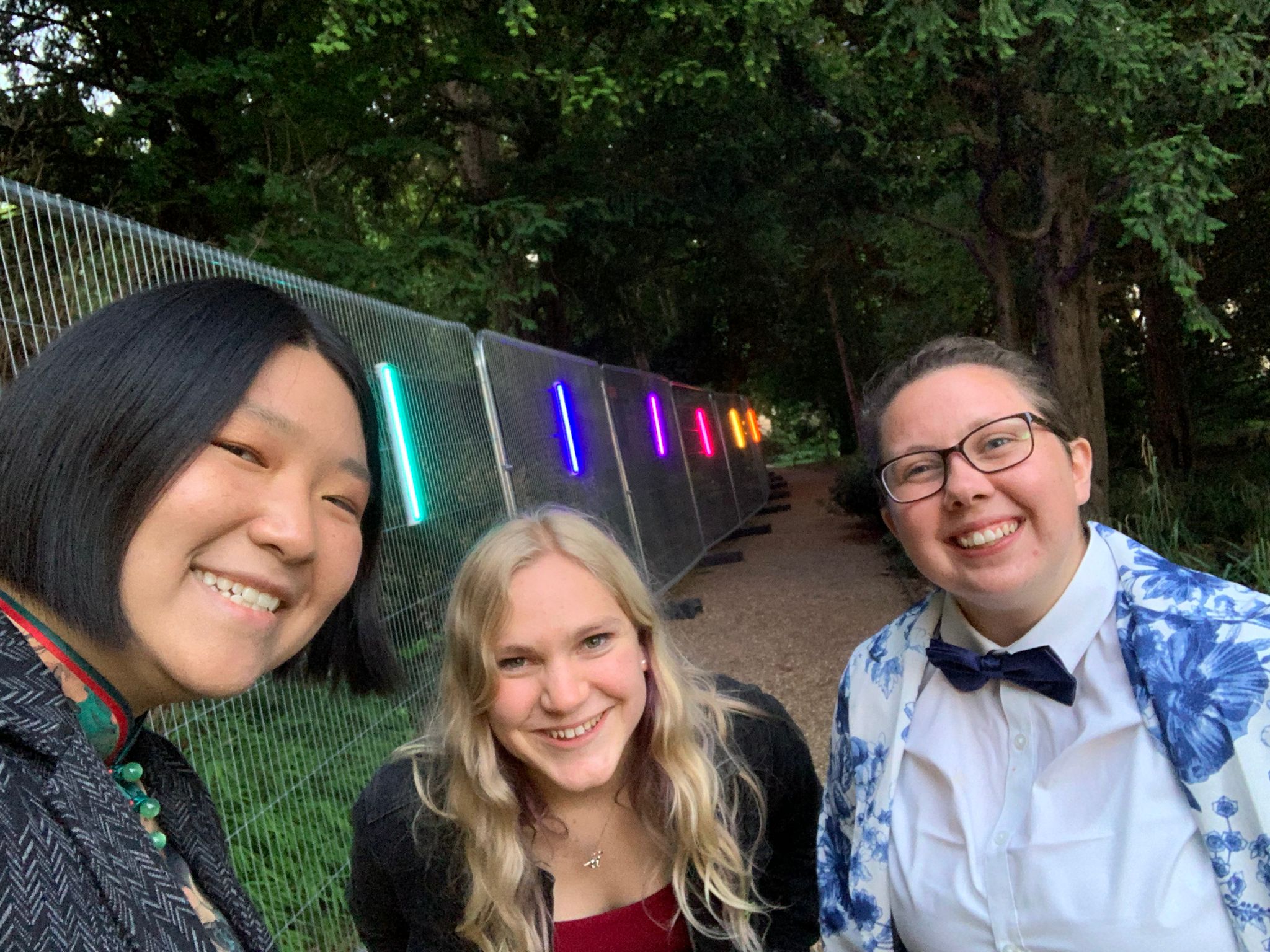 |
What do you think of the collegiate system in general?
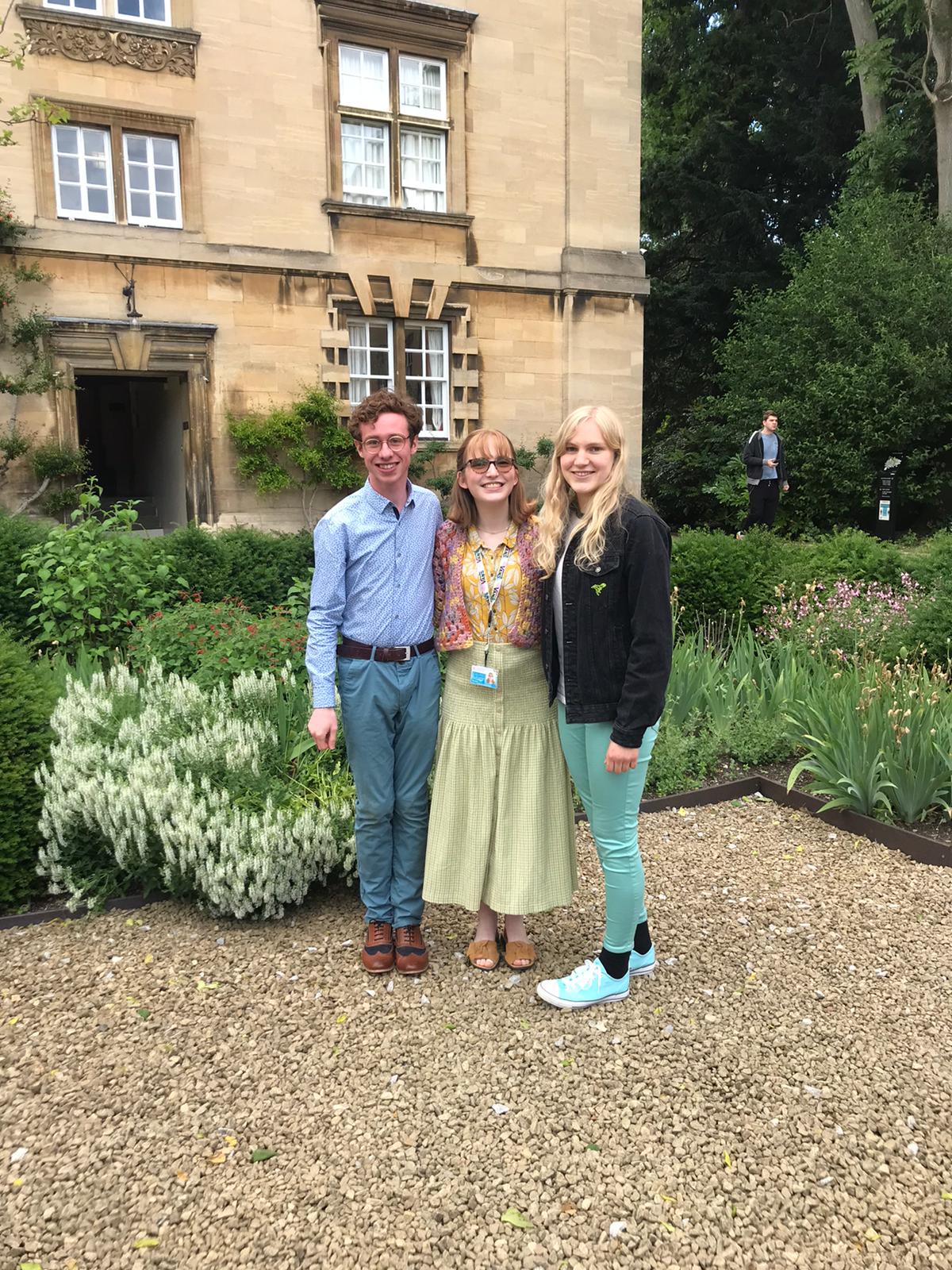
I think it's good in giving students a smaller hub where they have accommodation, libraries, and some beautiful spaces to be. It's also allowed me to make friends with people who do wildly different courses, which, unless you are heavily involved in university-wide societies, can sometimes be difficult to do. Having 500 or so people who live in a relatively compact space allows you to mix and make friends in a non-intimidating and unforced way, which I definitely appreciated in first year.
However, it is also a confusing system to navigate when you are applying! My big advice would be to not sweat it too much if you can. It's worth thinking about the size of the place, how pretty/green/old/modern it is (depending on what's important to you) and the location relative to the town centre, your faculty, any other facilities you might want to use, but other than that your experience will be pretty similar wherever you go. Especially on a small course like linguistics, your teaching will be scattered everywhere (I have been taught at King's, Homerton, St. John's, Selwyn, and Christ's, as well as in the faculty building on Sidgwick Site) and I've ended up with friends at lots of colleges: all of them are happy with the place they are at.
Where is your favourite place in college?
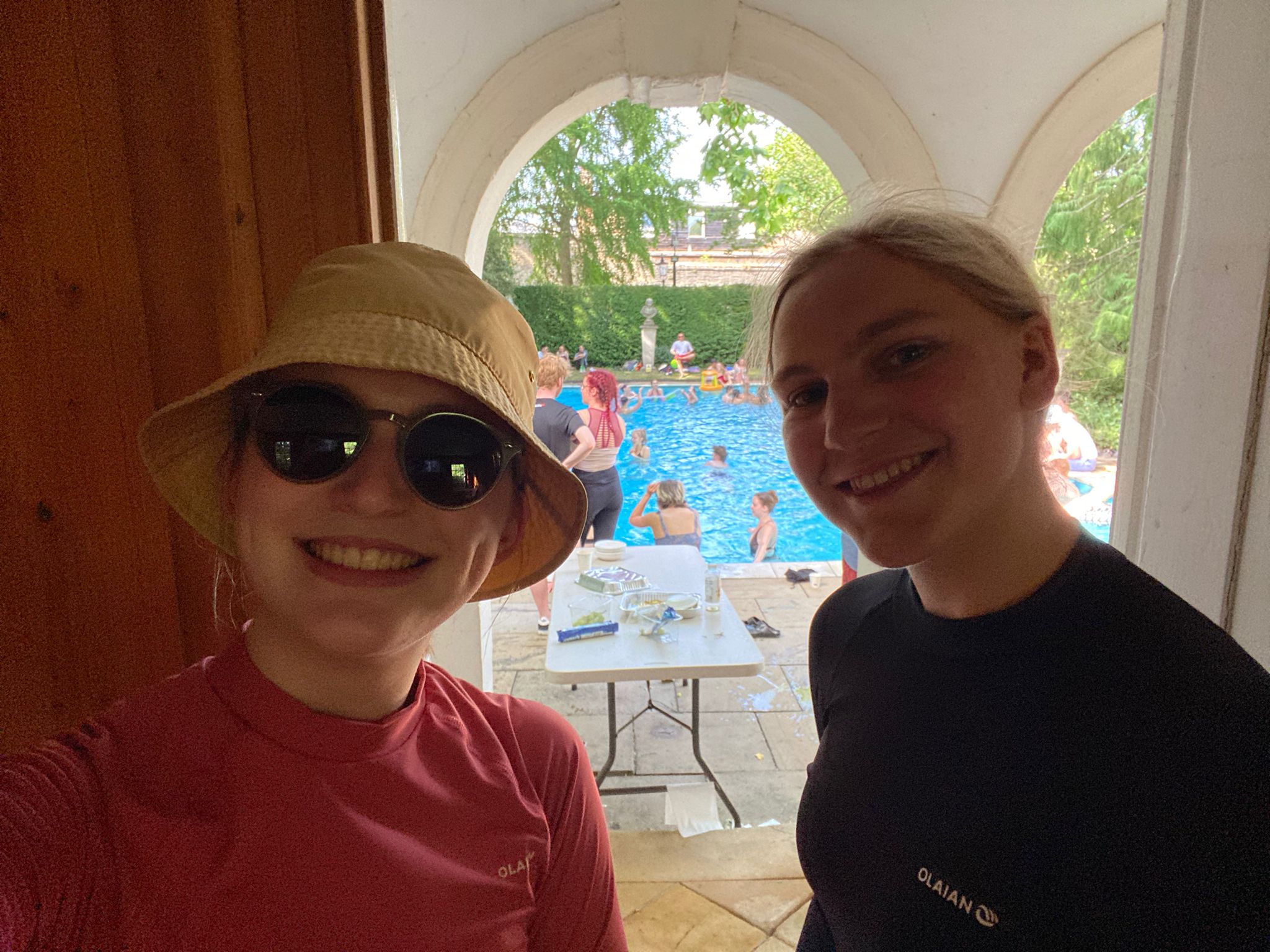
My favourite place to sit is definitely Third Court - you're surrounded by stunning plants and awesome old-looking buildings, and sometimes there are ducks which is very exciting. I prefer to work outdoors when the weather (and my laptop battery!) allows, and the tables in Third Court allow me to do that, often with a few friends too. The other highlight for me is the Swimming Pool, which I used a lot in the two weeks after exams finished but before the end of term (luckily the weather was good because it is cold!).
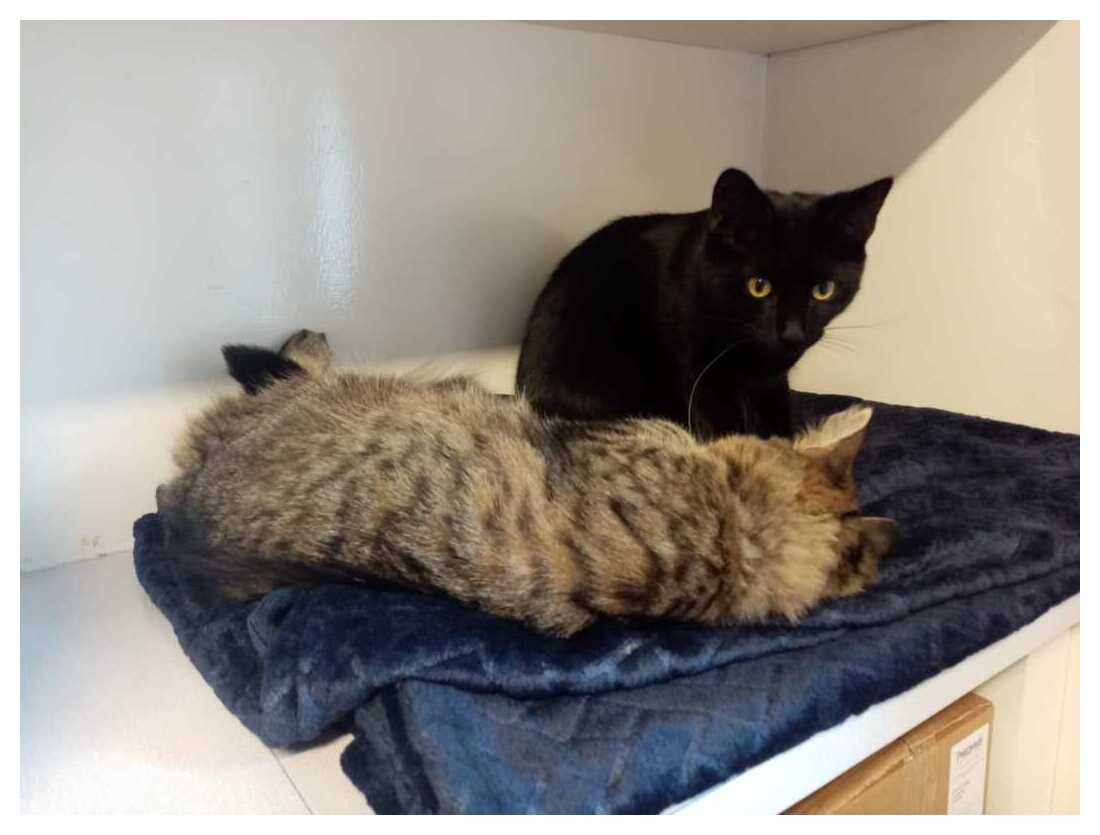
However, both of those are pretty boring answers, so the most underrated place in college is the admissions office! The people in there are really lovely and excellent at answering questions from prospective students. Plus, it's where the college kittens, Finch and Baines, like to hang out during the day, and they have excellent taste.
What advice would you give to prospective Linguistics applicants?
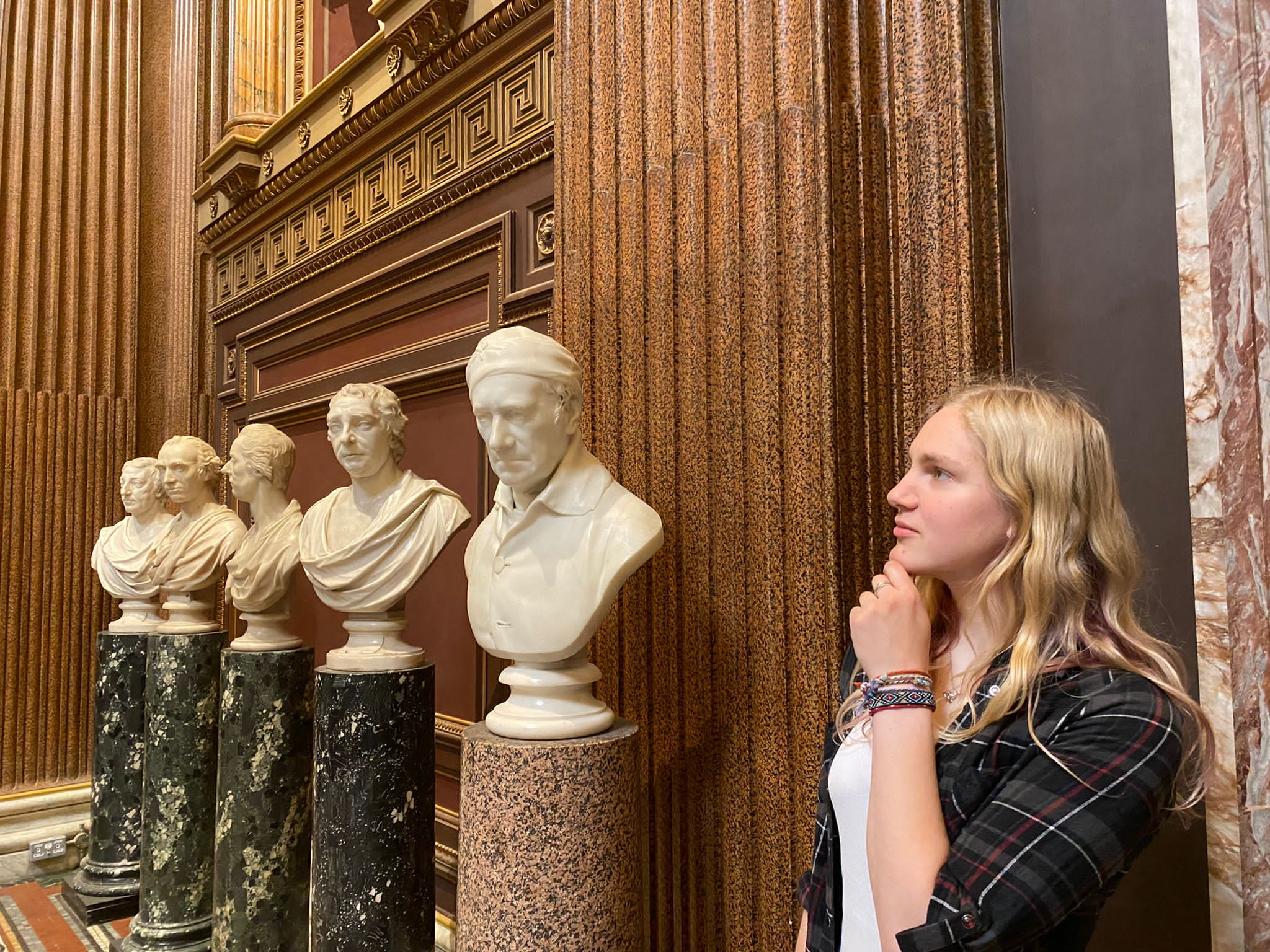
There are lots of good introductory things that will help you to work out if linguistics is something you might be interested in: Tom Scott's Language Files are a series of short YouTube videos that talk about some key concepts. There are also some great podcasts: Because Language is my favourite, but Lingthusiasm and The Vocal Fries (which is specifically sociolinguistics) are also good. If you'd rather books, I'd redommend anything by David Crystal (such as How Language Works), Language Myths by Laurie Bauer and Peter Trudgill, or The Articulate Mammal by Jean Aitchison as a good starting point.
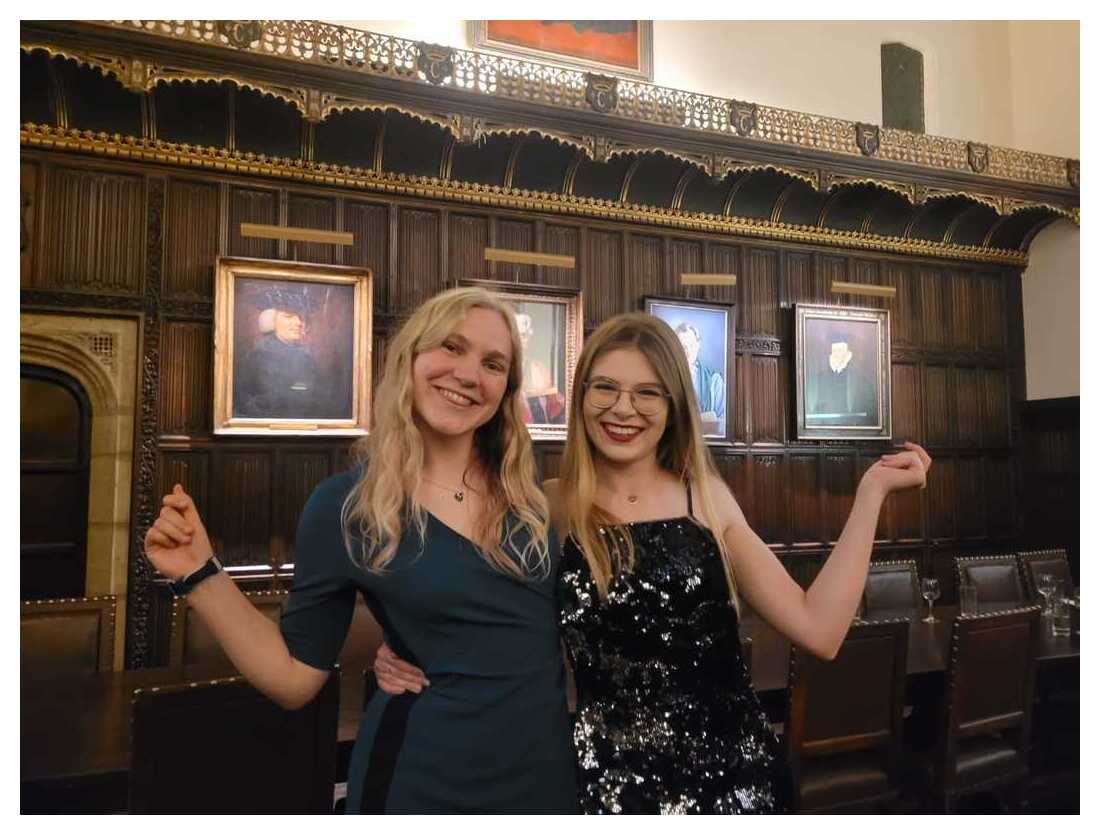
Importantly, focus your research on the things that you enjoy: if you hear/read something interesting in a general linguistics book or podcast, have a look for articles or other information about the same topics! You could also have a look at the relationship between linguistics and the subjects you enjoy studying at A-level. I came to it looking at the problem-solving and sociological aspects of language, but if you take a foreign language, you could look at the linguistics of that language as research; if you like psychology you could look at language processing; if you study computing, you could look at computational linguistics. There can also be less obvious links, too, such as the relationship between music and syntax, or physics and phonetics.
For the admissions test, I went over some of the practice papers available on the University course page: I did one at my own pace, and another in timed conditions. For the section where you need to analyse some language data, I did some UK Linguistics Olympiad questions as practice. Beware, though, in my experience the UKLO questions were significantly harder than the ones in the Cambridge admissions assessment or interview!
What was your interview like?
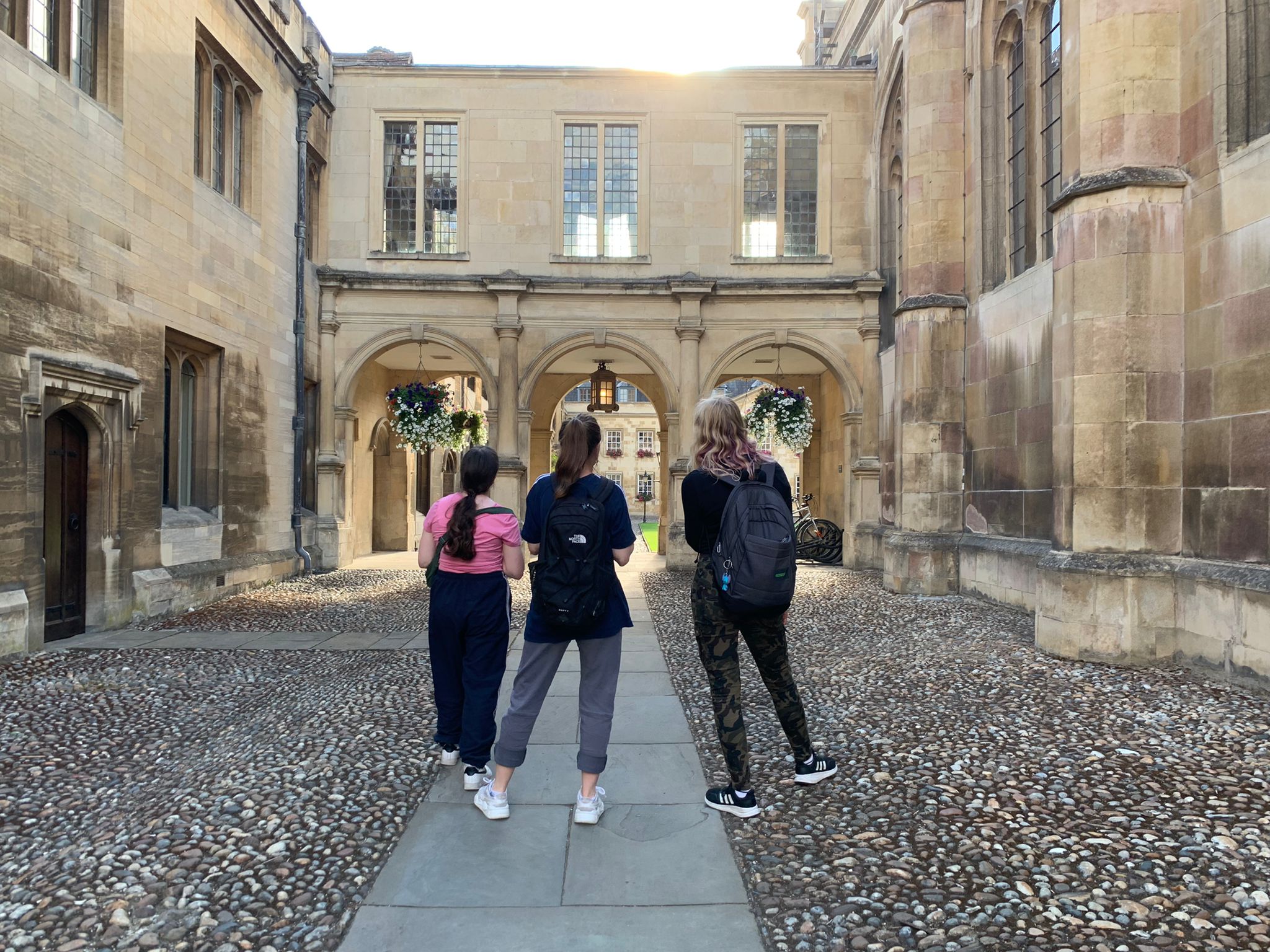
As I mentioned earlier, it was my interview that made me realise I wanted to do linguistics, which was a really big thing to take from it, even if I hadn't got an offer from Cambridge. I was really, really nervous, and I certainly didn't answer every question as well as I could have (I still cringe when I think about some of my answers!), but they don't particularly expect you to have a brilliant insight into everything they ask. For me, the questions I had some good ideas on were the ones they asked a lot of follow-ups about, whereas the topics I had to kind of fudge a response to were generally moved away from pretty quickly.
I had two interviews, each of which was about half an hour long. At the time, Christ's didn't have any academics in Linguistics, so I had one with two people from linguistics-adjacent fields at Christ's, and then another with a linguistics lecturer and PhD student from King's. The first one was a lot about my general thoughts on language-related topics, and felt a lot more like a discussion than an interrogation –I found their questions really interesting and would often ask them stuff back about their own fields! The second one had some linguistics problems to go through (kind of UKLO-style, but again, much easier!), and we talked a bit about some of the stuff mentioned in my personal statement, as well as general linguistics topics. It was the first time I'd properly spoken to someone who did linguistics, so their questions gave me a bit of an insight into the things I might explore in my degree and I came out having kind of... enjoyed it?
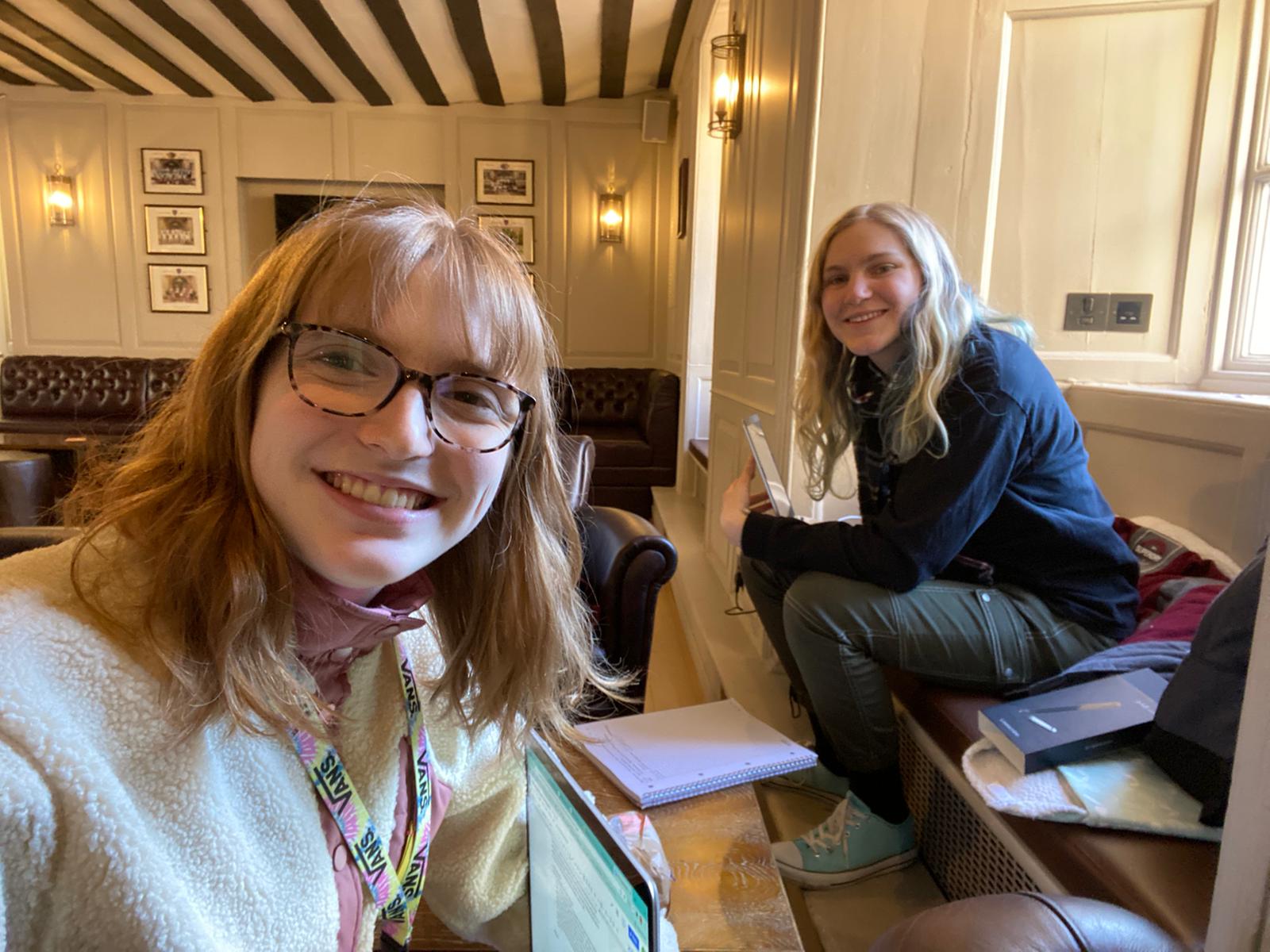
My big piece of advice would be to talk through all of your thoughts in response to the question. Even if you think it's stupid, it's the interviewer's job to meet you where you're at and help you explore your thoughts and ideas: they can't do that if you stay quiet! Also, you are the worst person to judge how you've done in an interview. Your brain latches on to all of the most awkward things you say, but all the really cool stuff disappears pretty quickly. Once the interview is over, your best move is to forget about it (or at least try to!).
Before coming to Cambridge, what were you looking forward to, and what were you nervous about?
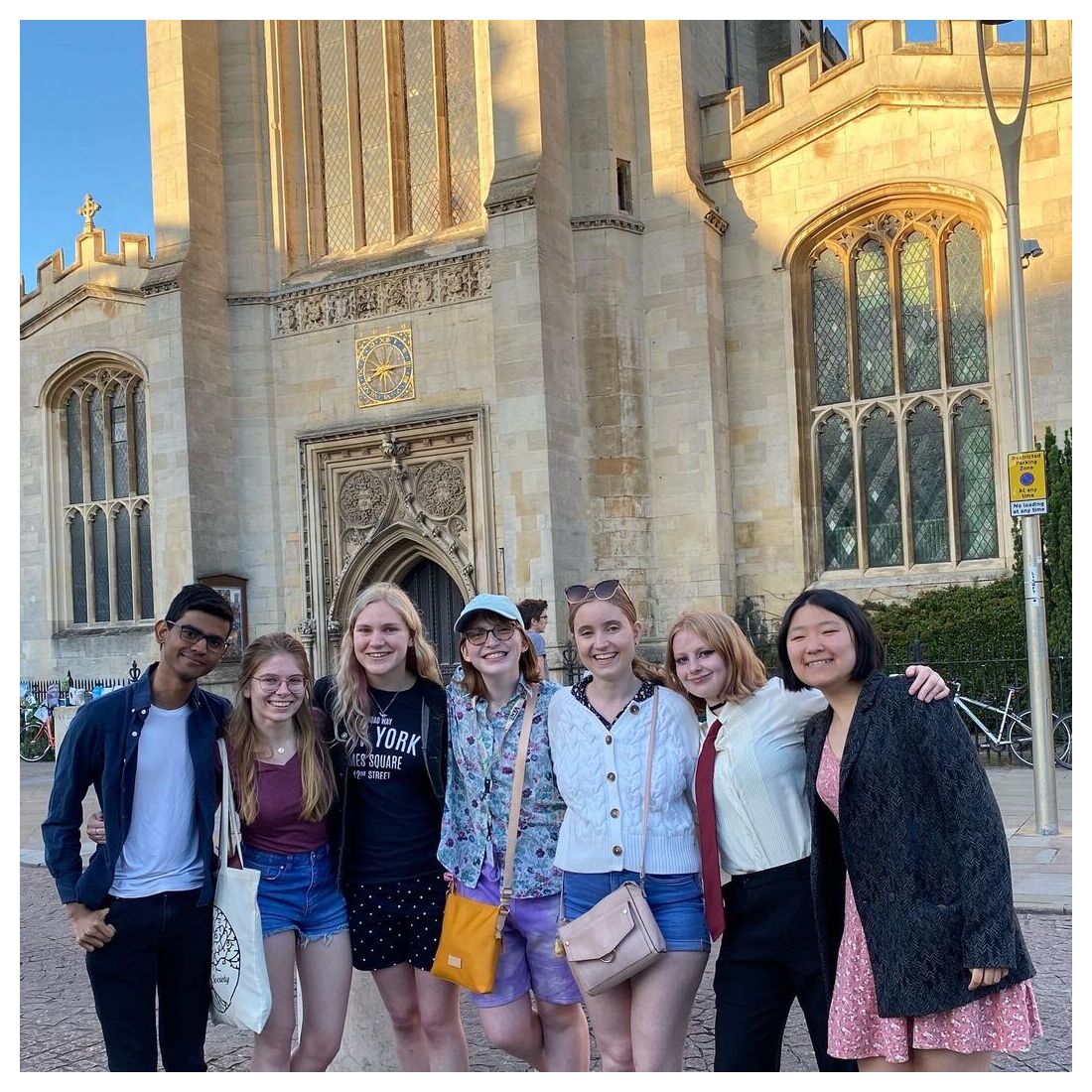 I was looking forward to starting my course, and also to exploring a new city. One of my favourite things about Cambridge is how many places there are to go for walks: there are some nice paths along the river (which is less than ten minutes' walk from Christ's) in both directions, you can go to Granchester, or see the whole city from Castle Mound, and the novelty of walking through town with all the impressive buildings hasn't worn off after two years! I'm still finding new places.
I was looking forward to starting my course, and also to exploring a new city. One of my favourite things about Cambridge is how many places there are to go for walks: there are some nice paths along the river (which is less than ten minutes' walk from Christ's) in both directions, you can go to Granchester, or see the whole city from Castle Mound, and the novelty of walking through town with all the impressive buildings hasn't worn off after two years! I'm still finding new places. 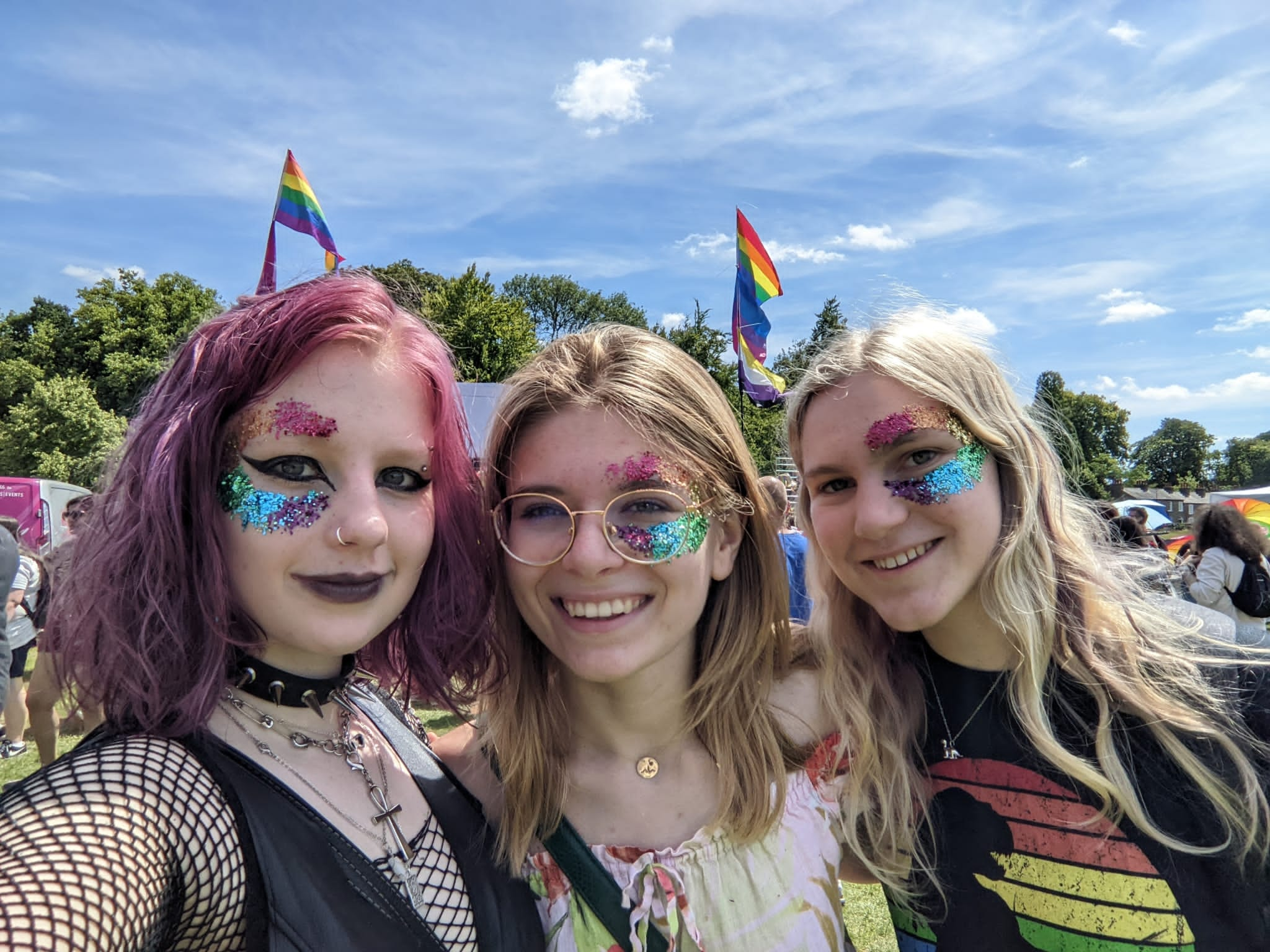
I was nervous about all the things that first-year students are normally nervous about: being away from home and making friends. I was especially worried about fitting in, and that there wouldn't be many students from 'ordinary backgrounds' here. Organisations like the Class Act Campaign and the 93% Club do a lot to help bring people from state-school and working-class backgrounds together, and it was getting involved with outreach work in my college that helped me to make a lot of my closest friends here. I have friends from loads of different backgrounds, all over the world, which is great!
What helped you to settle in?
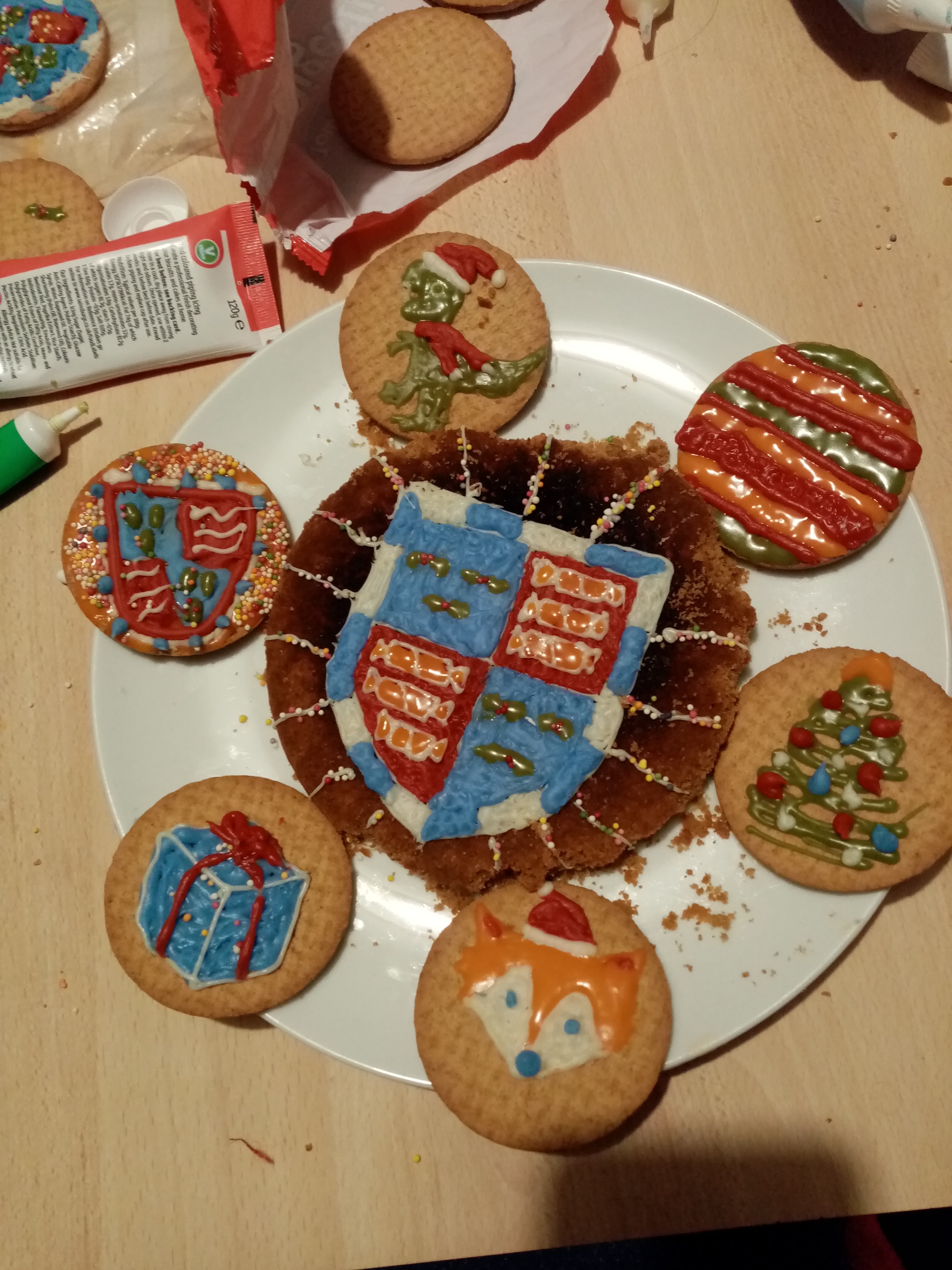
I came on the Bridging Course in the summer before I started at Christ's. There were eight of us here, all from places and backgrounds with low progression to top universities, and we spent a few days in Cambridge doing social activities together and a-week-and-a-bit online doing academic stuff, including essays and supervisions with linguists. It meant I made a few friends here before I'd even started, which was great, and the academic sessions gave a really valuable head-start in some of the new skills you need when starting at university (reading critically, essay-writing, verbalising our ideas in supervisions etc.).
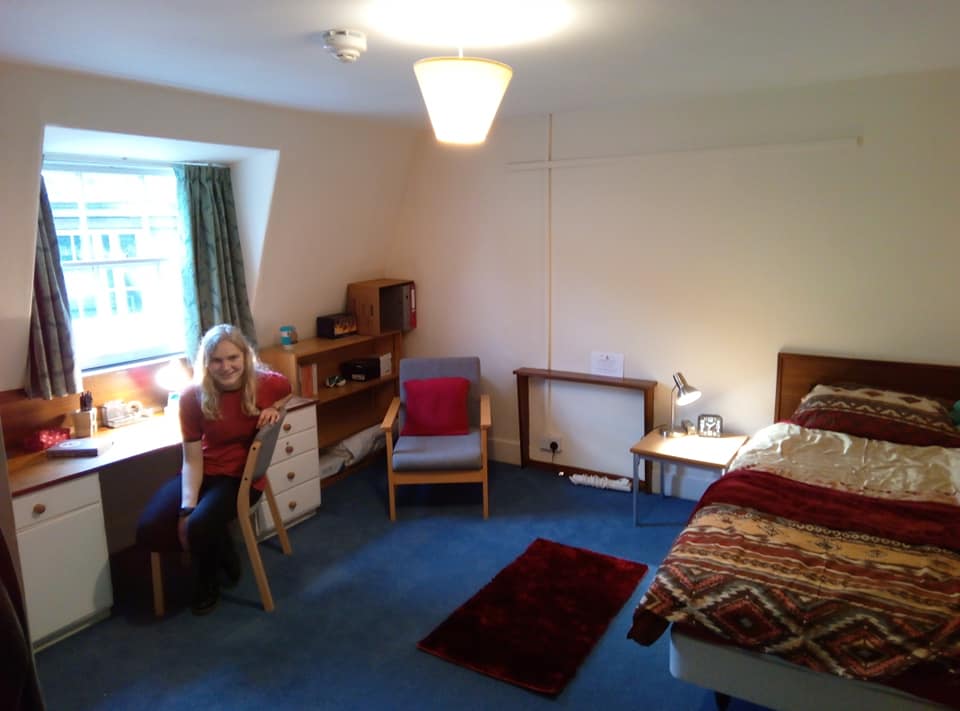
All of the bridging course participants were given a mentor, who was an older student on a similar course. Mine was brilliant, and regularly kept in touch throughout my first and second year; she was a massive influence in helping me get used to Cambridge. I was also really lucky in that I lived across the hall from someone on my course but two years older; he helped me out a lot with linguistics stuff, settling into my new home, and much more besides. My 'college parents', two students in the year above who are selected based on shared interests to keep an eye on two or three freshers (every fresher has them!), were also really supportive, and I also had a 'subject sibling' in the year above me, who shared resources and made it really clear she was always there for us. The collegiate system is really great for giving you a whole circle of humans you can turn to for the inevetable bumps that come up in your first term of university.
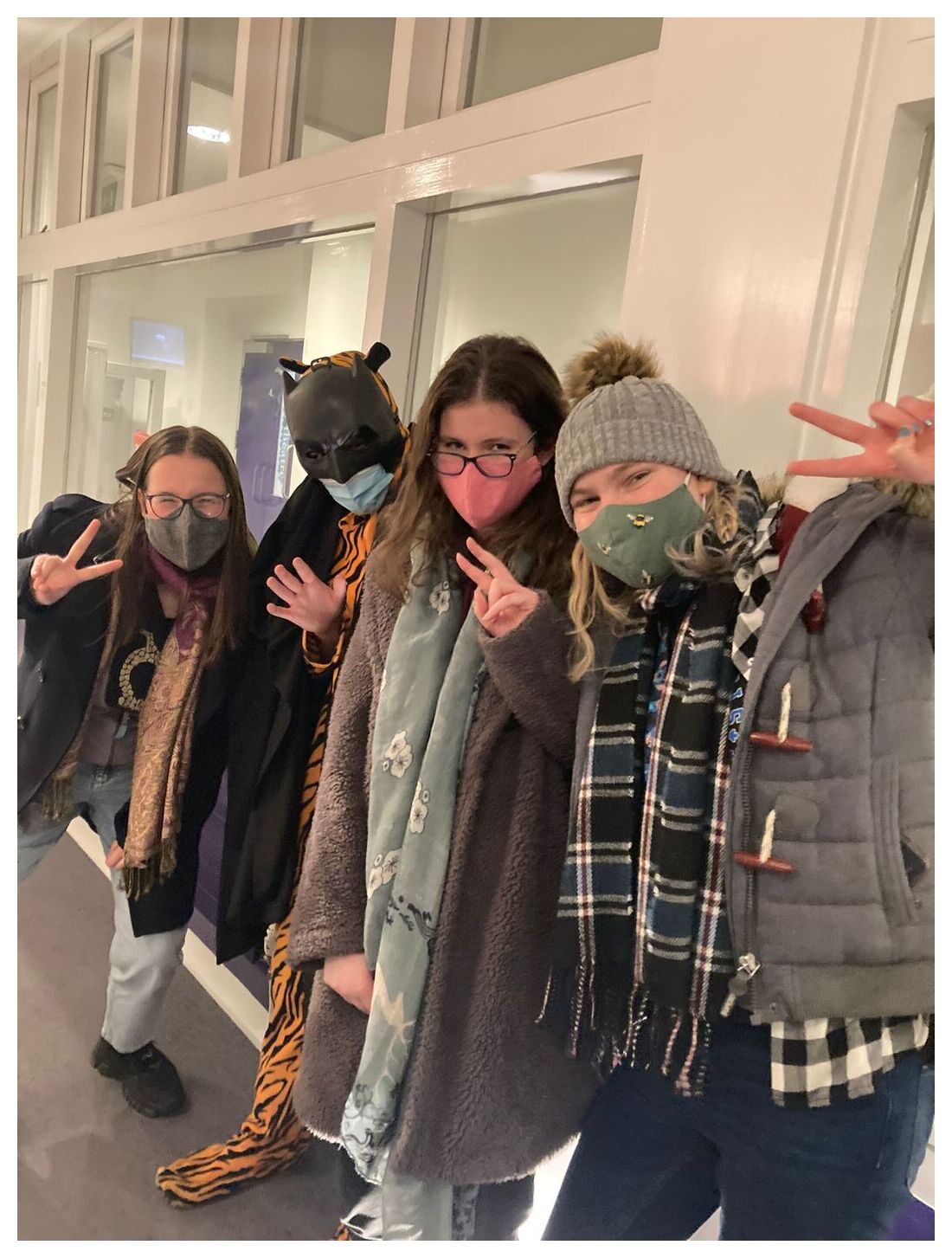
Although I got settled into my course fairly quickly, it took me a bit longer to settle into social life in college. Partially because of the Covid-19 pandemic, and partially because I'm a bit of an introvert, I didn't meet my most of my current friends in College until around April of my first year. That's okay! There are plenty of students who find their people later on: I promise it does happen eventually. When I did find them, it was through eating together in Upper Hall, or getting to know one or two people through college societies and being introduced to their friends. One of the big differences between socialising at school and at university is that rather than having one 'circle' of friends, you end up with lots of groups: your college friends, coursemates, housemates, those you meet in societies. That suits me really well because it means that if I want to escape College or my course (it happens!), there's always someone I can hang out with.
How did you find starting lectures and supervisions?
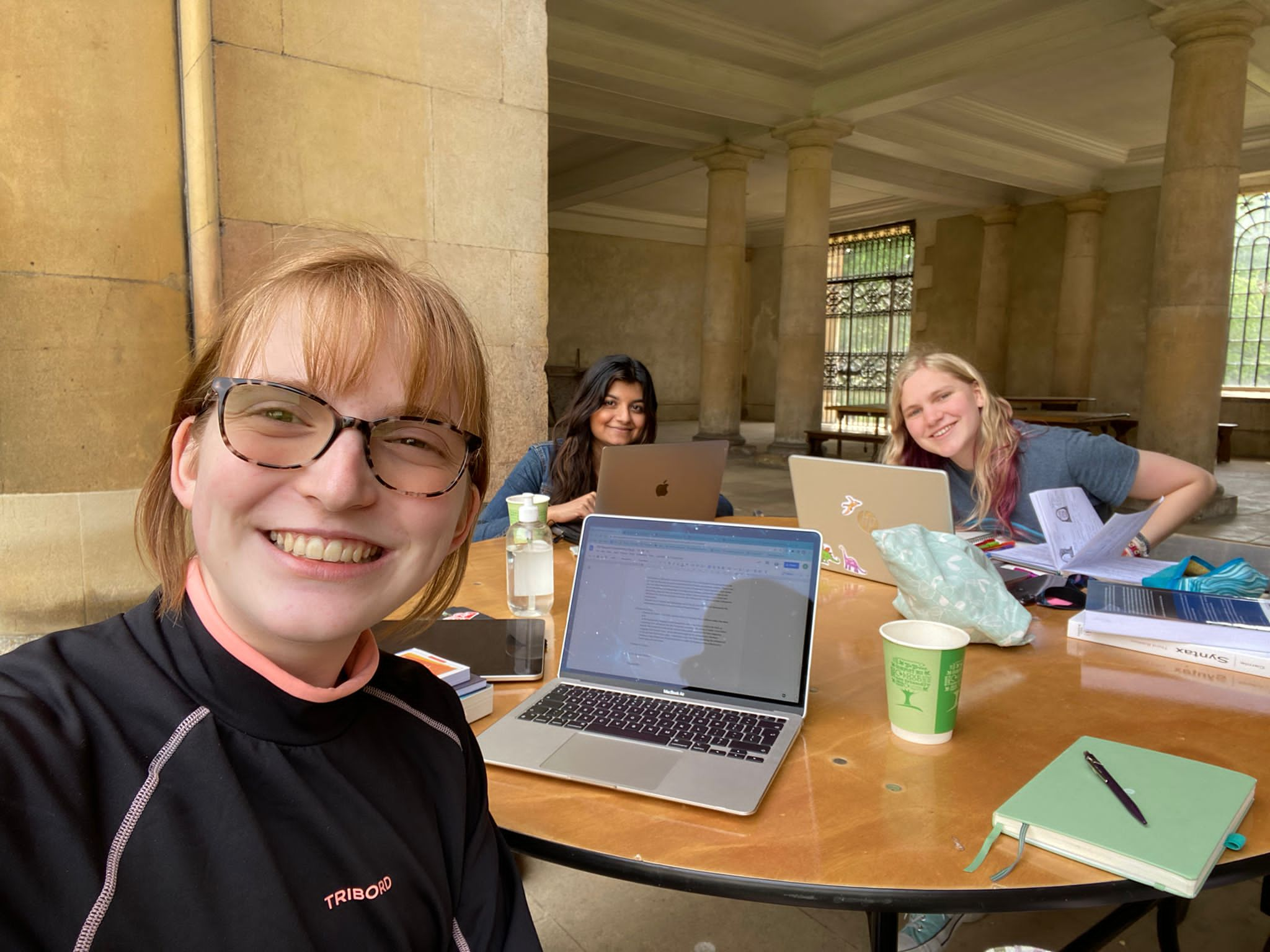
Lectures were mostly great, but definitely a mixed bag. First-year linguistics only has compulsory modules, which is great because you get an overview of every aspect of language. This includes the proper biology-and-physics science of human communication (phonetics), the theoretical and puzzle-y bits (phonology, morphology, and syntax), the philosophy of language and meaning (semantics), psychology, sociololgy and language acquisition, and some historical and variationist linguistics (taught through looking at the history and varieties of English). However, it also means you have to sit through some stuff you don't find particularly interesting – I really struggled with the historical bits of first year and have steadfastly avoided it since! The exposure to all the different topics is helpful in making you properly have a go at everything before deciding what you want to do. I probably wouldn't have picked to do the more theoretical stuff I've enjoyed doing this year without being made to try everything initially.
Supervisions were a little scarier: there were six of us in my first-year supervision group (which is pretty big as Cambridge supervisions go!), but it was difficult to get used to having such a small class. The work we had to do for them was either a problem sheet of some kind (like the results of an experiment to interpret, or some text to transcribe, or a sample from another language or a variety of English to analyse), or occasionally a 1500-word essay. They were (usually) pretty interesting! As I got more used to the small classes, having more individualised attention from an academic than I'd ever had at school became really useful, as it meant that we could find answers to the things we, specifically, had found difficult in the assignment.
What are the best and hardest things about your course?
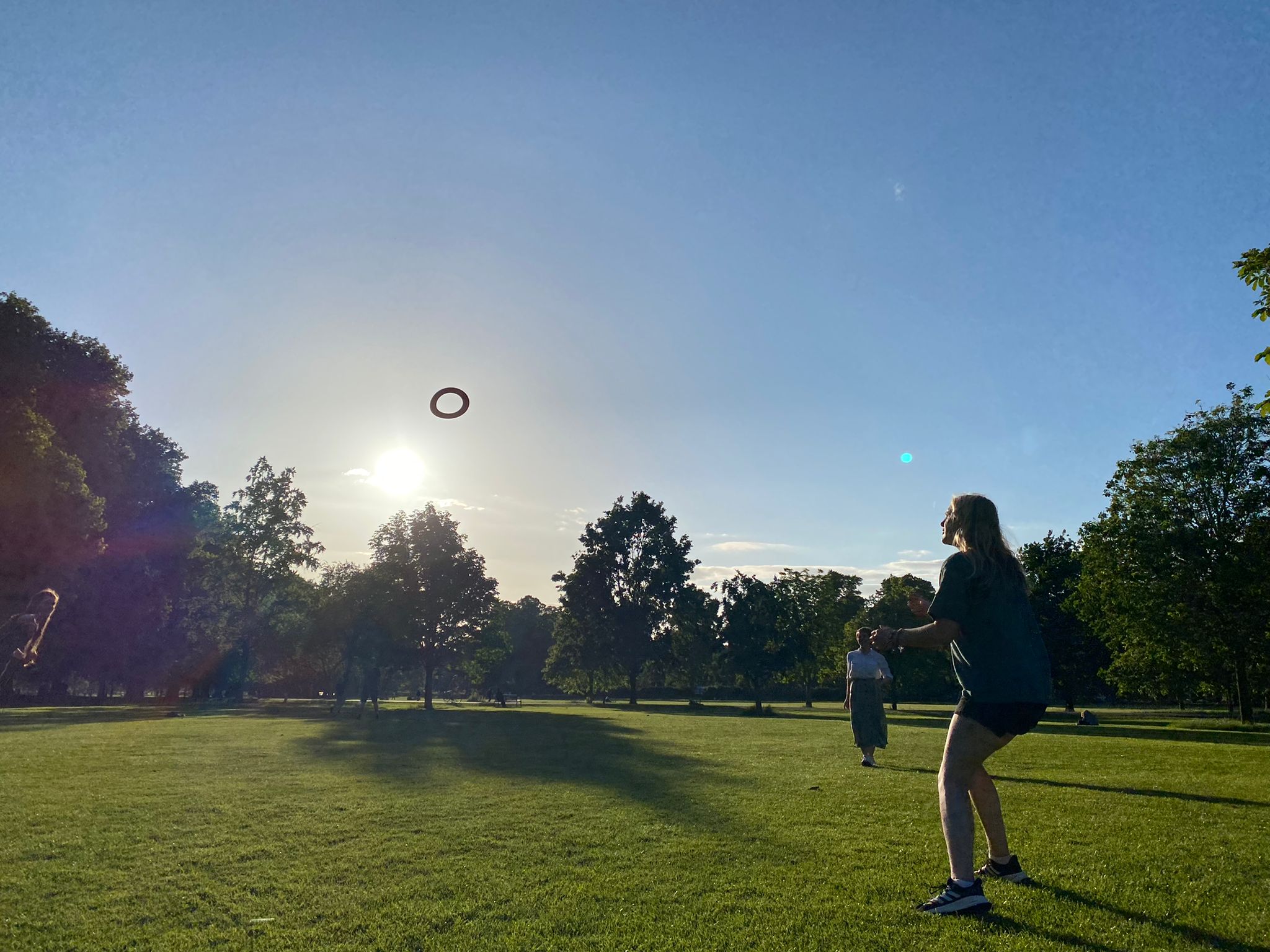
The best thing about my course is the way it blends arts, sciences, and social sciences. If you think language is a social phenomena, you might think linguistics is a kind of sociology, which some aspects definitely are. But if you want to systematically study the way languages differ, and how they are constructed, the techniques you need to use are a lot more scientific. One of my friends who studies Modern and Medieval Languages said once that people studying MML want to make friends with languages, and people studying Linguistics want to dissect them: I like the fact that I get to look at the processes involved with both!
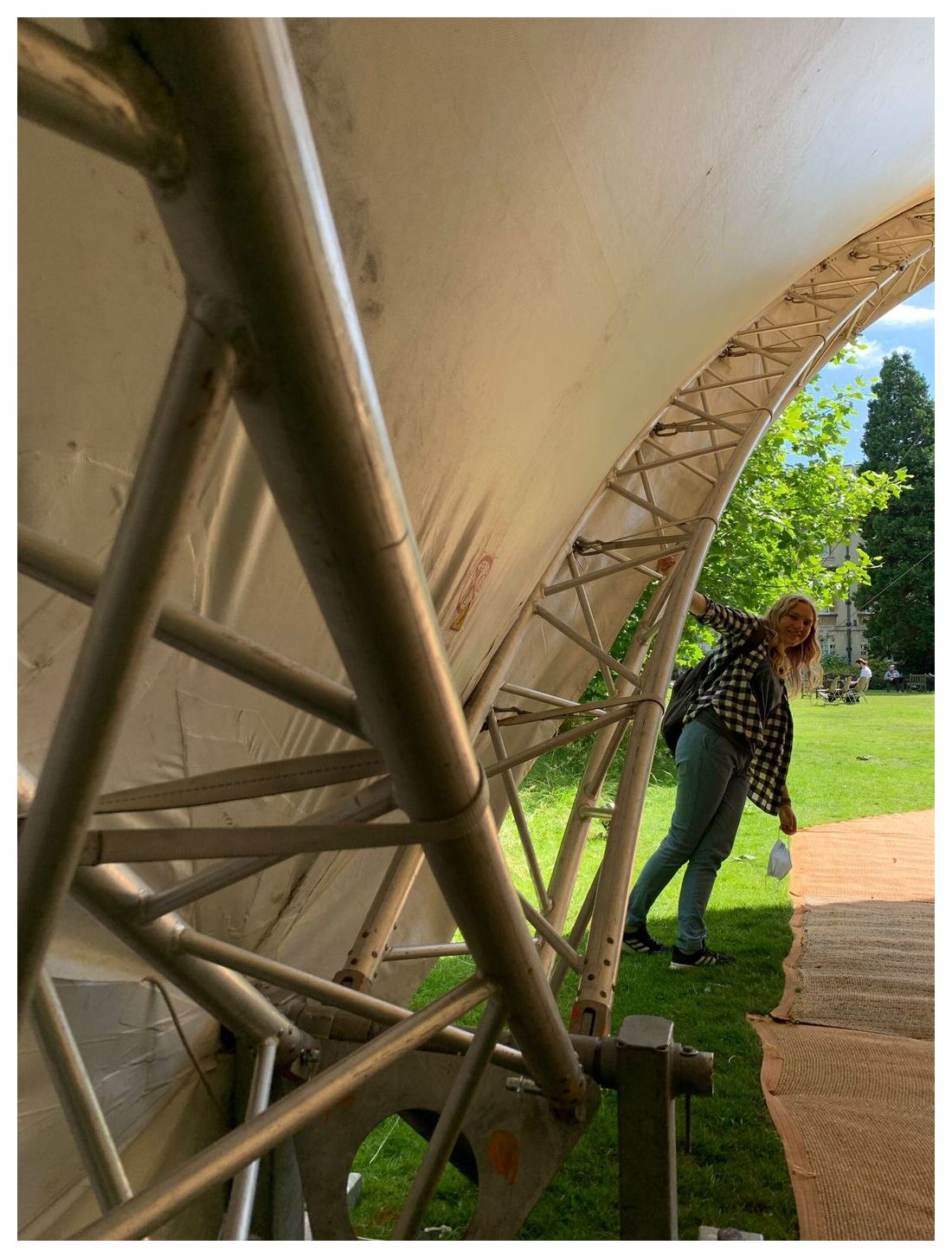
The hardest part about the course, as with most courses here, is probably the workload. In second-year, the focus switches from problem sheets to essays, and on average you'll research and write two 1500-word essays a week. It makes it easier that the stuff you're writing about is genuinely interesting, but I often wish that I had more time to do a thorough job. Having said this, my supervisors so far have all been really understanding that we have a lot to do, and are very happy to recieve detailed plans rather than full essays, or move supervisions until outside of term to help you balance your workload. If I could give one piece of advice to my first-year self, it would be that supervisors are on your side, and are flexible and kind if you ask them!
What has been your favourite topic from this year?
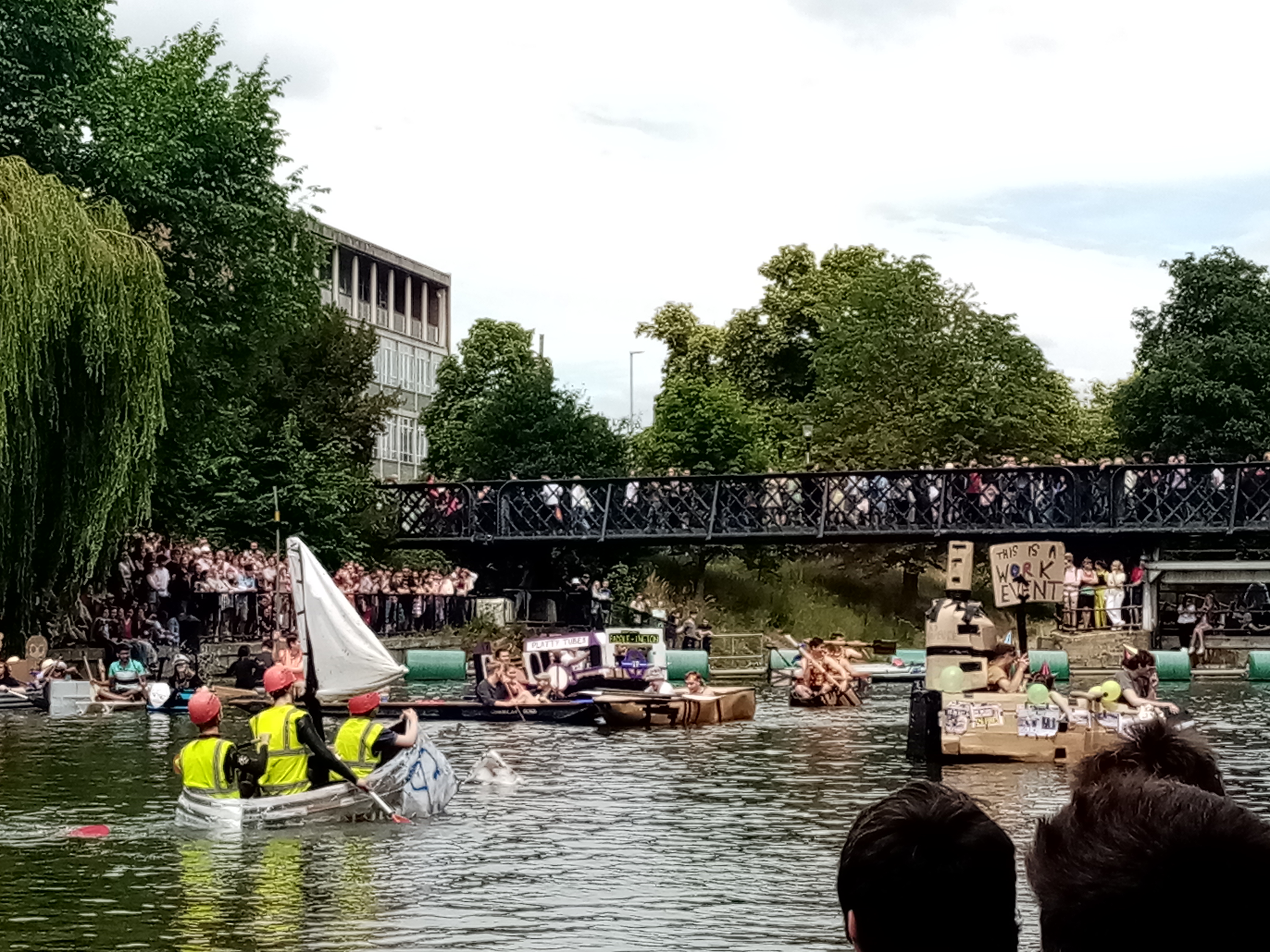
This year, I took Li7: Phonology, Li9: Syntax, Li10: Semantics and Pragmatics, and Li16: Psycholinguistics.My favourite paper was phonology, which is about sound patterns in languages and the different theories of how sounds pattern accross languages. It sounds very theoretical, but my favourite parts were the ones where we used language phenomena we'd seen in real life and looked how it could be explained theoretically. For example, we had one essay where we studied the productions made by very small children, and some language games (like Pig Latin and its equivalents in other languages) played by kids, and tried to make generalisations about syllable structure and whether certain sounds are 'simpler'. I didn't anticipate how far the supervisions can veer from the topics in question based on what we found interesting: we had a conversation in one of my phonology supervisions about how close linguistics was to paleontology, and if there is any analogy studying between (extinct) languages and (extinct) dinosaurs!
I was surprised by how much I enjoyed syntax, which is about the language structures, and the similarities and differences between structures in different languages. It was the paper I was least certain about taking, as I'd found it difficult in first year. However, going more in depth with it has made the whole topic make more sense to me, and I really enjoyed some of the supervisions: like phonology, there are a lot of links to other areas of linguistics, such as psycholinguistics and acquisition, which are really interesting to explore. I'm planning to do a syntax-based dissertation next year (I would definitely not have predicted that a year ago!), which I'm really hyped about: although I still find it tricky to get my head around, I'm glad I stuck with it.
What does your timetable look like?
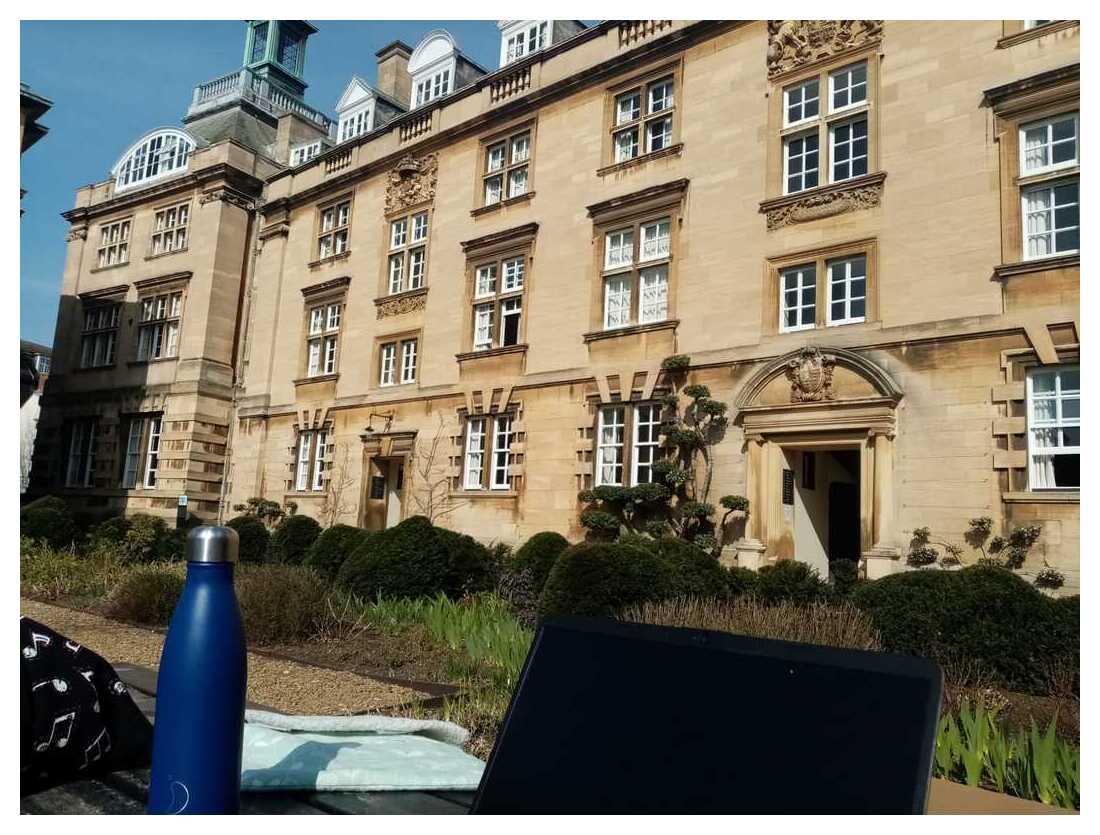
In first year, we had five lectures a week (one for each of your compulsory papers and one optional general-linguistics one), plus around three (between two and four) supervisions. In second year, the assignments are generally longer, so there's a little less contact time. We have four lectures a week (one for each of your paper choices), and two supervisions a week (one per paper per fortnight).
The rest of my time is taken up with reading for lectures, and researching and writing supervision essays. One of the biggest differences between my work now and at school is the freedom that independent research gives you: the amount and direction of the reading you do for a given essay can really depend on your interest in the subject. There were definitely assignments last year where I did the bare minimum of research needed to answer the questions, and others where I chose to look at things in more depth. You get some choice in the questions you answer in your exam, so you can focus on the topics you've put the most work into throughout the year.
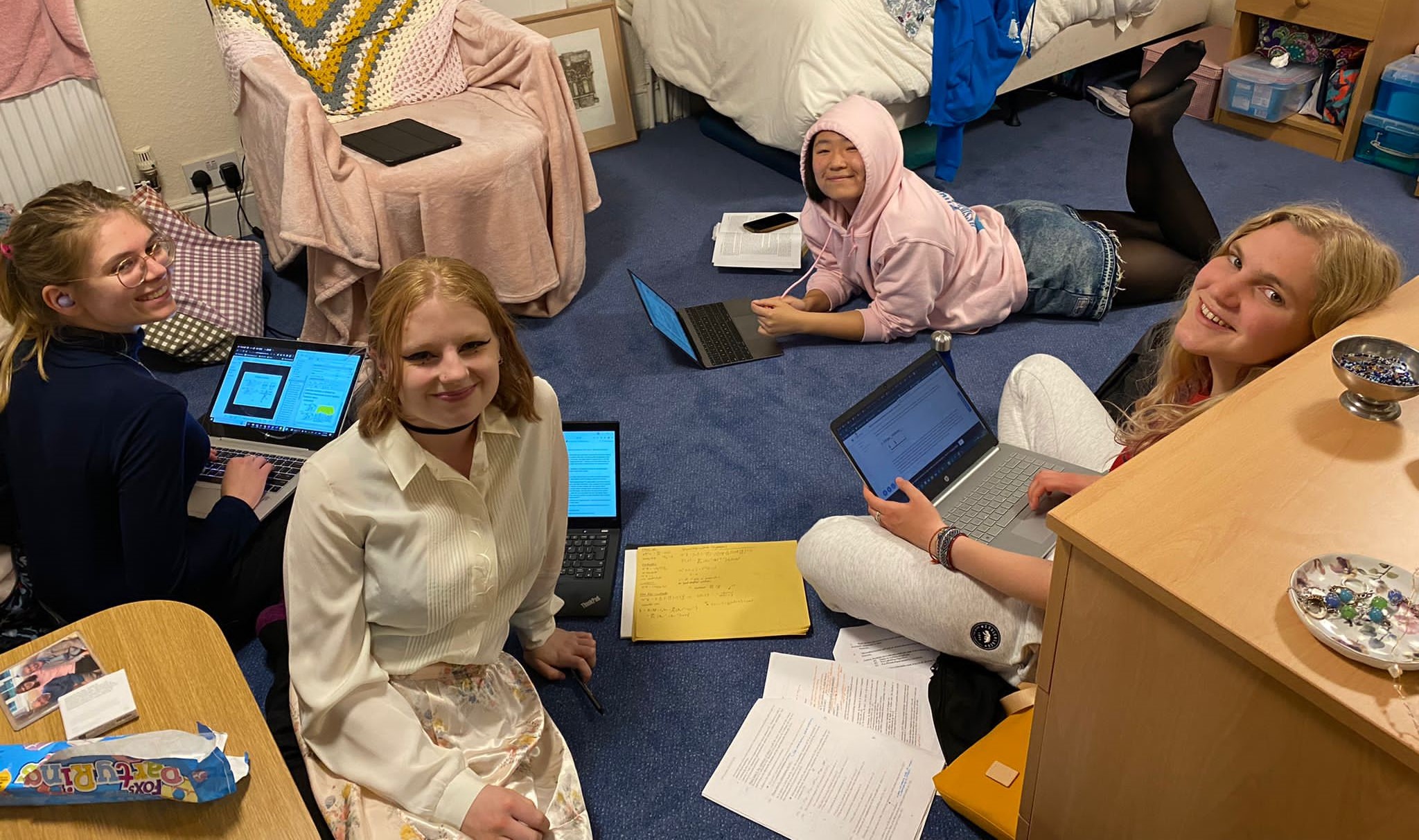
I've found that I am more easily distracted when my work area is silent, so I don't tend to work in libraries or alone in my room very much, though I regularly go to both Christ's Library and the Modern and Medieval Languages and Linguistics faculty library for books. I like working in my friends' rooms (or in my room with friends), or one of the cafes around Cambridge (the Whale Cafe at the museum of Zoology is a favourite!), or in Christ's Buttery if I want to stay close to home. As soon as the weather is good enough, I like working outdoors: I would estimate that around 70% of my degree has been written in Third Court, the Fellows' Garden, or the terrace of the Typewriter building in New Court!
What do you do when you're not working?
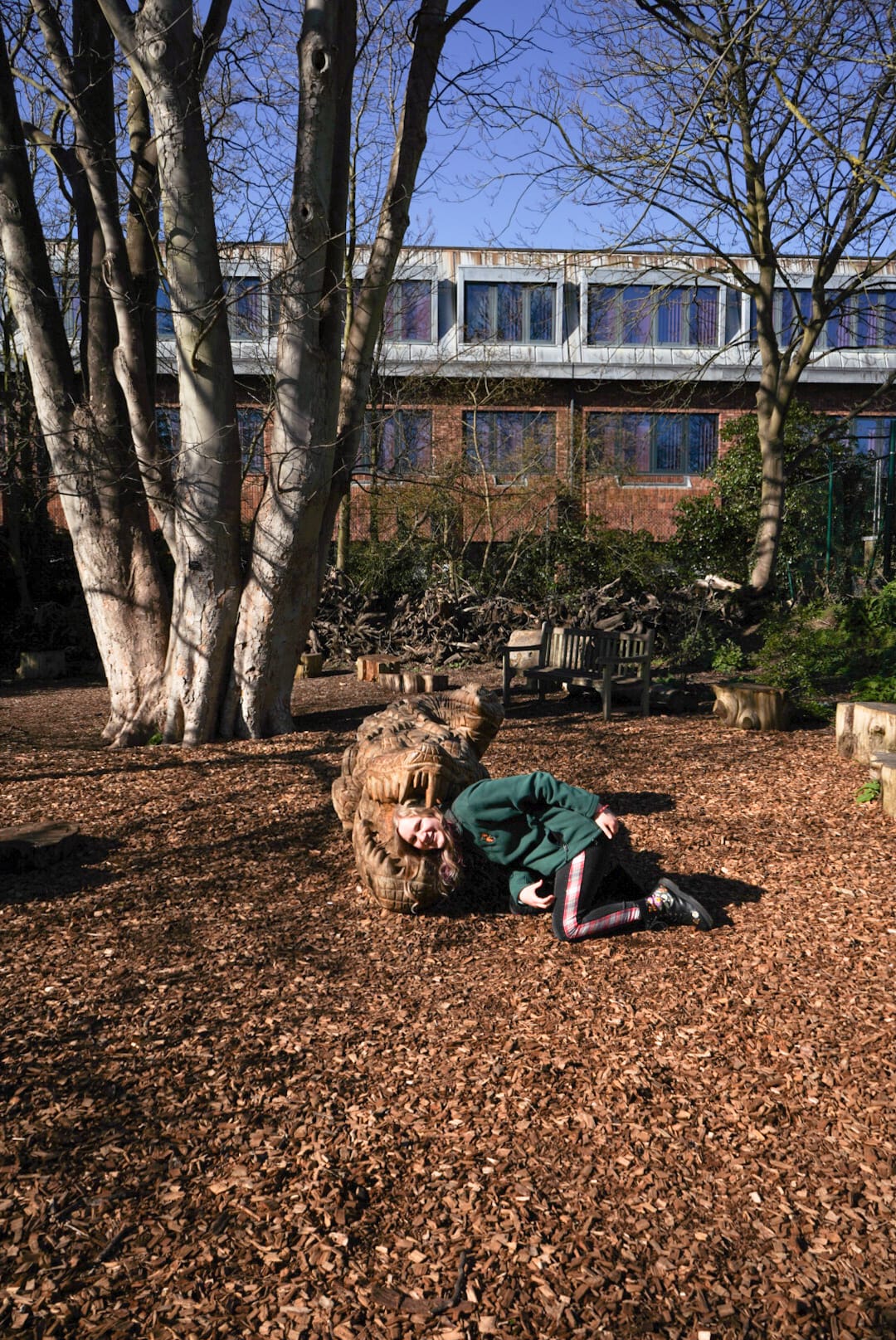
I'm on our college's JCR (undergraduate student union), as Access Officer. As well as going to lots of meetings, it means I get to do cool work helping people who want to come to Cambridge, especially those from disadvantaged backgrounds, and provide support and resources to other students at Christ's who also want to get involved in outreach work. I've done some mentoring with offer-holders and applicants through programmes such as Project Access, Apply:Cambridge, and STEM SMART, and it's been a really rewarding part of my university life.
I also like sports, despite being pretty terrible at them! College provides lots of opportunities for people to have a go at sport for fun, without the expectation you'll be any good. I play badminton with the college team at Kelsey Kerridge, and football with the Christ's-Churchill-Cavendish women's team: both of them are really fun. There's a supportive network of other players, good socials, and I look forward to training every week.
I'm invoved in a fair bit of not-degree-relevant linguistics in my spare time. The University Linguistics Society (LingSoc) and Cambridge Linguistics Forum have talks on alternating weeks, and I go to those if they look interesting. There's also SyntaxLab, which do syntax-specific talks every week, which I'll often come along to. Although there's no expectation that you get involved with academic-related stuff outside of your degree, Cambridge has a lot of cool linguistics stuff going on (given there are only around 40 of us per year at the whole university), and it's definitely worth having a look to see if there's anything going on that may interest you - most of them are no-committment, so you can just show up to things if you have the time.
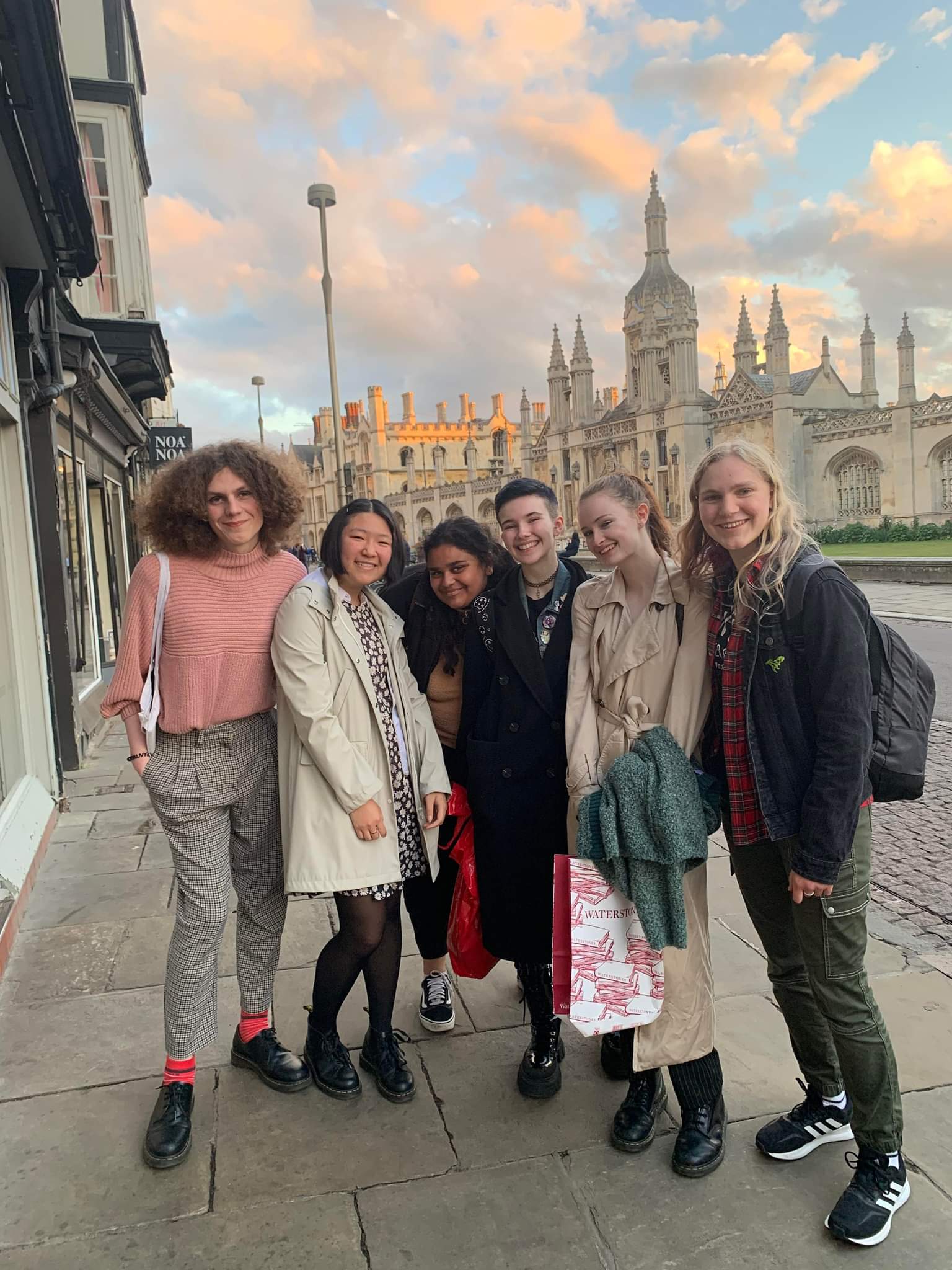
I'm also a section editor for U-Lingua, a free UK-wide magazine run by the Undergraduate Linguistics Association of Britain (ULAB), and am also Accessibility Officer on the ULAB committee. A bit of a self-plug, but I'd really recommend that prospective applicants for Linguistics have a look at what ULAB do. It's all run by undergraduates, so is designed to be accessible to those without huge amounts of linguistic knowledge, and they have even run events and competitions specifically for school leavers!
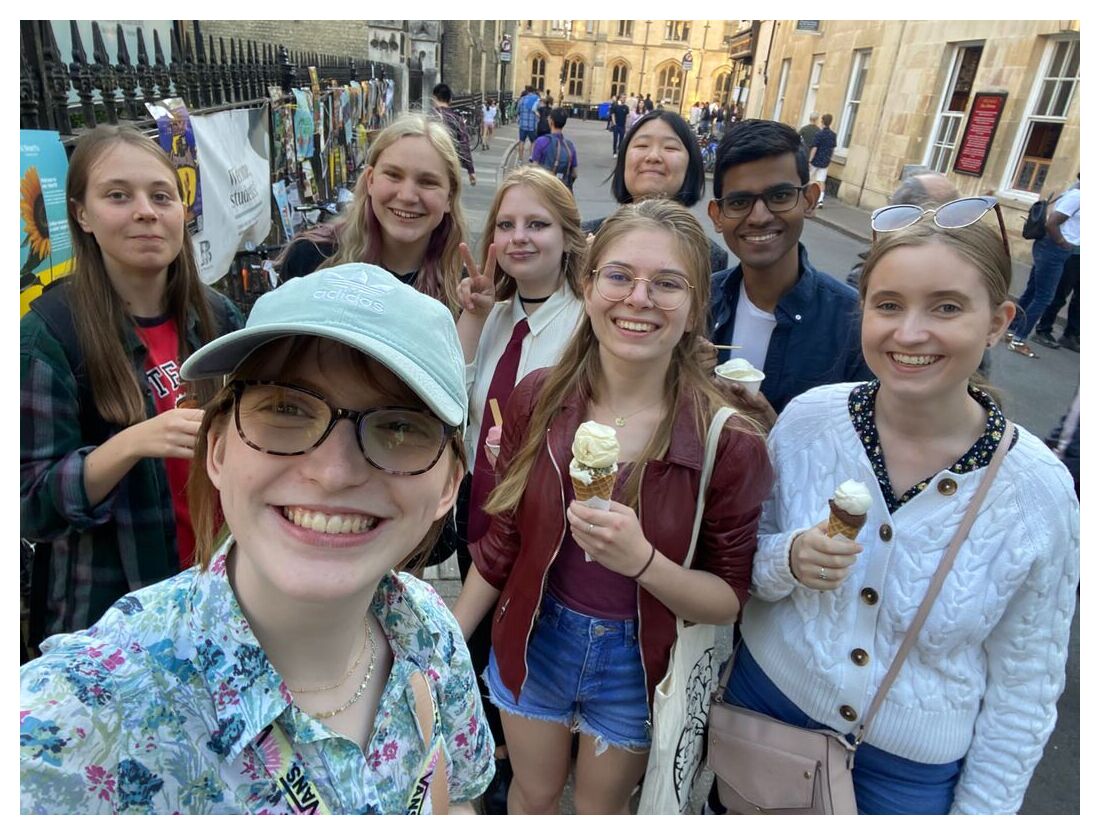 Finally, there are a lot of non-organised fun things to do in Cambridge that people often forget about. There are some beautiful places to go for walks (and rollerskates...) by the river Cam, some amazing picnic spots in Jesus Green, Midsummer Common, or even our own Fellows' garden if you don't want to go too far. I like wandering through museums with my friends, going for ice-creams at Jack's, watching student comedy at the ADC theatre, and doing other random stuff. I like sewing in my spare time, and as a result last term accidentally got involved with Cambridge theatre, making costumes for a play written and directed by my very talented friend Ariel.
Finally, there are a lot of non-organised fun things to do in Cambridge that people often forget about. There are some beautiful places to go for walks (and rollerskates...) by the river Cam, some amazing picnic spots in Jesus Green, Midsummer Common, or even our own Fellows' garden if you don't want to go too far. I like wandering through museums with my friends, going for ice-creams at Jack's, watching student comedy at the ADC theatre, and doing other random stuff. I like sewing in my spare time, and as a result last term accidentally got involved with Cambridge theatre, making costumes for a play written and directed by my very talented friend Ariel.
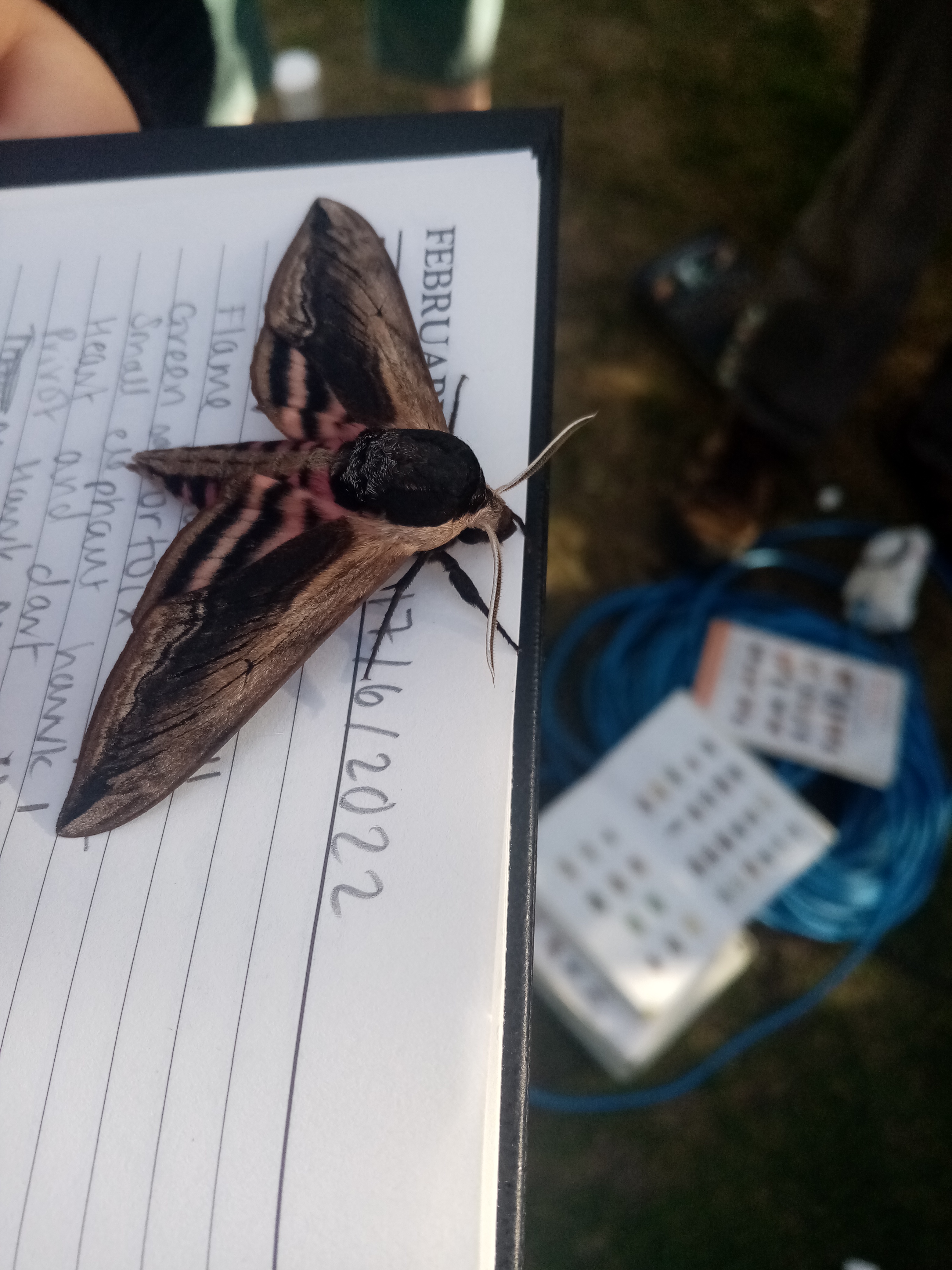
One of my best memories from last year was just after exams, when a friend of mine who does Biology offered to take a group of us to go and identify some moths with her at the Botanic Gardens. We got to see some really awesome insects and I learned lots of new things about a topic I had no experience of, while spending time with my friends. It's worth keeping an eye out for fun opportunities away from organised societies too.
Where did you live this year?
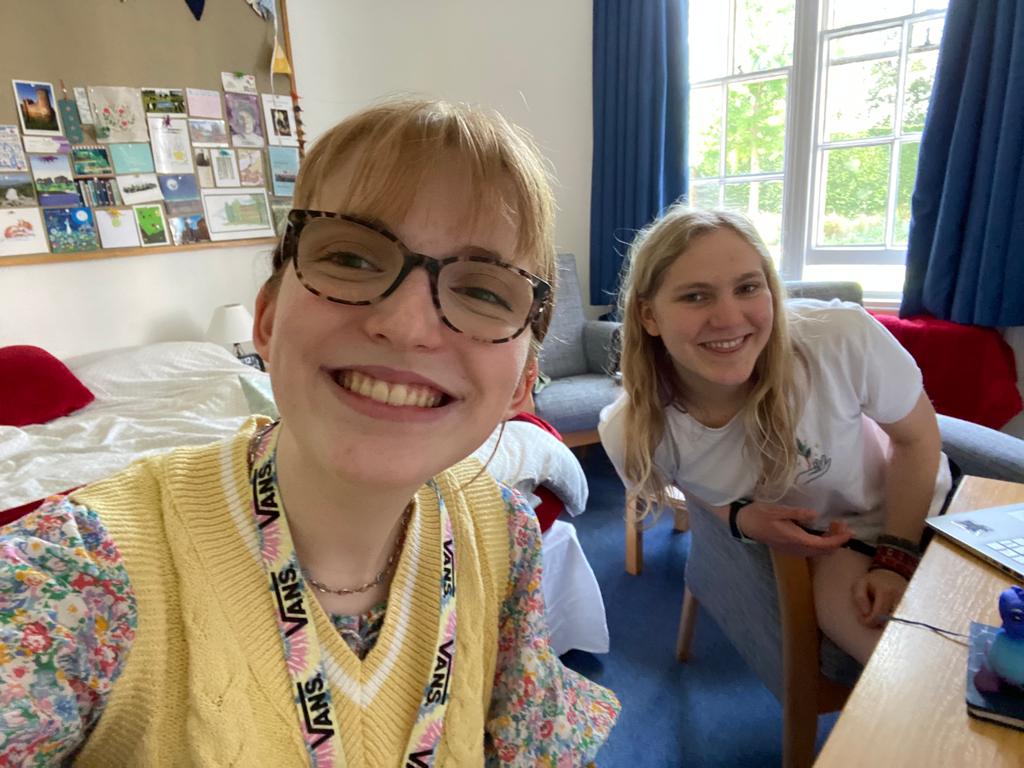
I lived on the ground floor of second court this year: you can see a 360 degree picture of it here (though it takes a little time to open). It was a really nice room in a stunning building right in the centre of Christ's, with a great view for people watching, as you can see the main path going through College from the window. It's also right next to Upper Hall, so my friends would often knock on my window on the way to or from getting food, which was really lovely and meant I got to see them lots, even during peak busy/exam season! Plus, there's a side gate in second court that leads straight to a Tesco, so I didn't have far to go whenever I ran out of milk – I definitely lucked out with accommodation.
How do you spend your holidays?
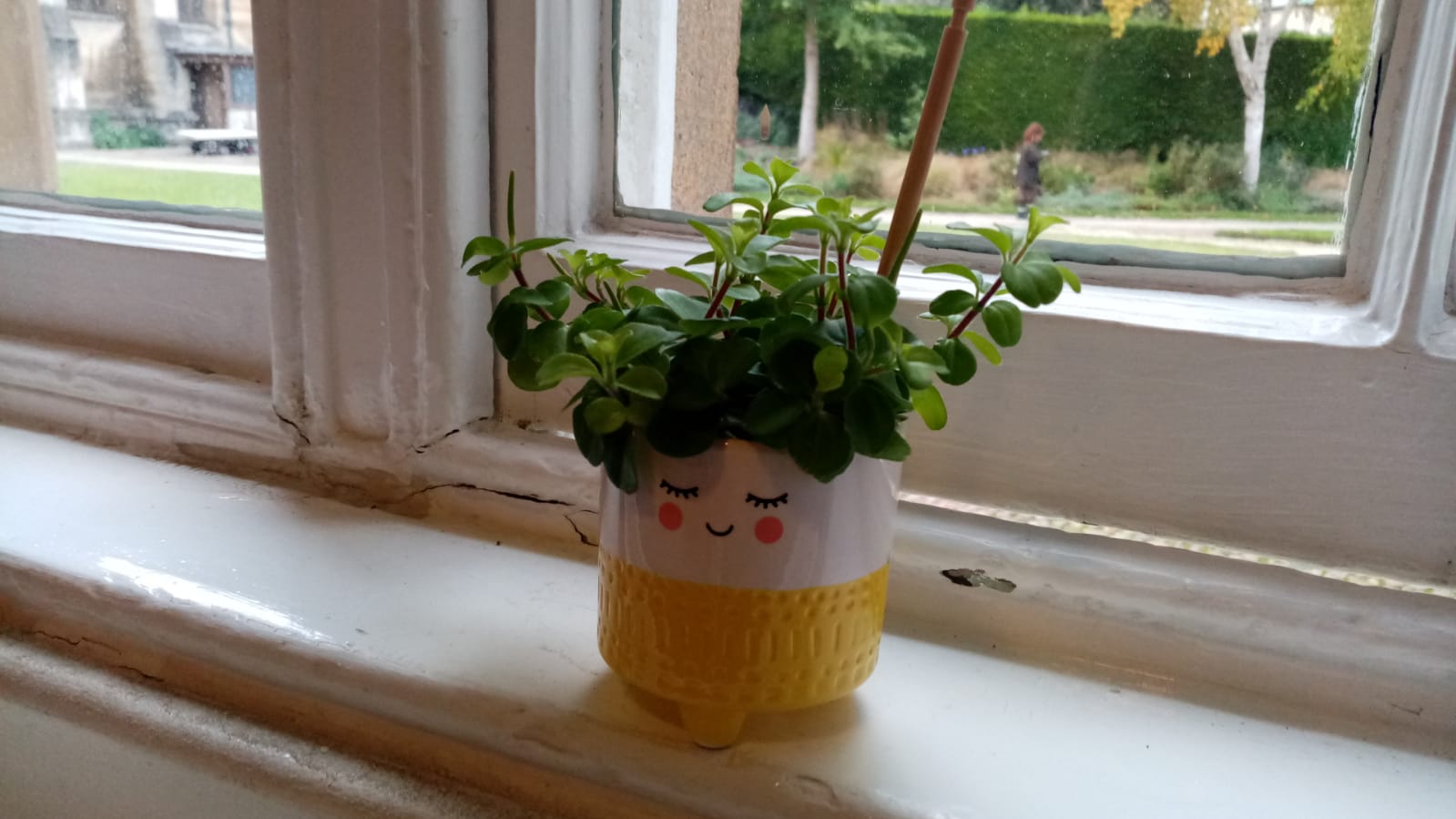
I try to do some reading on interesting stuff I don't get to fully explore in term-time, or to get a little ahead, but mostly I can spend the holidays doing whatever I want. This summer, I have spent some time and seeing my family and friends at home, and some time in College doing an internship in the Admissions Office – including putting these profiles online! I've had a great time being in Cambridge outside of term and have learned lots. Over Easter this year, I stayed in College to help with the Women in Maths and Christ's-Kings residentials, and then planned to go to Edinburgh for a holiday and to go to a ULAB conference, which College gave me a grant towards. Unfortunately, I got Covid and couldn't go on the trip, though I did follow the conference online and it was great!
What are you looking forward to next year?
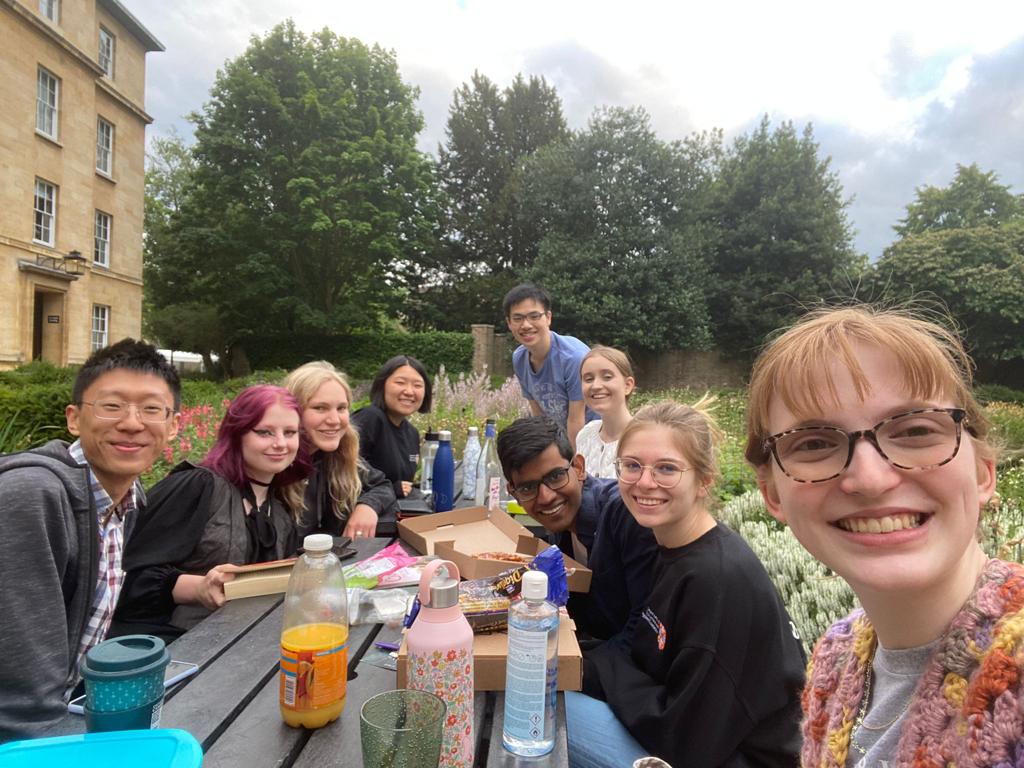
Academically, I'm hyped to get properly started on my dissertation. It'll be good to have a bigger project to research in detail, rather than lots of smaller essays. Being able to properly decide about everything you write about and every direction you go in is something I'm really excited about.
Outside of linguistics, I'm looking forward to spending more time with my friends and carring on with all the stuff that has made me happy this year: playing sport at the weekends; picnics in the Fellows' Garden; coffee-fueled group revision sessions; meeting more prospecive students through access work; drinking hot chocolate in my friends' rooms in front of dumb kids' films; and going for long walks along the Cam.
Back to Student profiles page / Linguistics at Christ's / Next: Arthur's profile

